#jon and at least one of the michaels also have the last names of famous horror writers
Text
Not to beat a dead horse, but the naming conventions in the Magnus Archives are truly delightful. Jonny really said, “Here’s a cast of fascinating characters! Their names are:
My actual full legal name
The first names of my friends + the last names of famous horror writers
Michael (x4)
They all die horrible deaths :)”
#there is some overlap between the three categories#jon and at least one of the michaels also have the last names of famous horror writers#tma#the magnus archives#jonathan sims#sasha james#tim stoker#martin blackwood#michael shelley#mike crew
7K notes
·
View notes
Video
youtube
Mercury Prize 2021 – Ranking The Contenders
It is that time of year again – the season of the Mercury Music Prize. In the last few weeks, the albums nominated for the 2021 Mercury Music Prize have been revealed and, as ever, it is a highly diverse and eclectic list of some of the best British and Irish music released over the last 12 months – some familiar, some not so familiar. Each of these nominated records is now vying for the prestigious title of Album of the Year, the overriding criteria for which has greatly deviated throughout the award’s history.
Traditionally the eventual prize winner would tend to be a lesser-known record rather than what was necessarily the best album out of the 12, with the judges choosing to highlight the artist and record that may have been overlooked and needed the most attention. However, this has changed in recent years, with the judges choosing what has been widely regarded amongst music critics as the best album in most cases.
So, with the likes of James Blake, Michael Kiwanuka, Dave, Sampha, Alt-J and The XX being just some of the acclaimed artists that have taken the top prize home over the last decade, the big question is - who is in with the best shout this year of being named the overall winner?
In recent years a strong favourite has often emerged from the pack, but I must say I find the 2021 prize to be the most open and hardest to predict in years. There is no clear favourite this time around for me, which makes for an exciting and intriguing build to the September awards show.
Despite the unpredictability, as I do each year I’ve listened to all 12 albums and tried to rank them based on what I think are their chances of winning. To be clear, this is not a “Worst-to-Best” countdown – this ranking is based solely on how likely I think they are to win the overall prize.
To determine this, I’ve considered the front-to-back listening experience and the artistic achievement attained by the album, the popularity of the artist, how critically acclaimed the album is and how similar albums have fared in recent years too. So without further ado, here’s my final thoughts and analysis on this year’s nominees.
12. Promises by Floating Points, Pharoah Sanders & The London Symphony Orchestra
This collaborative release from electronic artist Floating Points, American jazz saxophonist Pharoah Sanders and the London Symphony Orchestra was one of the albums I hadn’t heard prior to the nominees being announced, so was pleasantly surprised by what turned out to be quite an interesting listen. Built mainly around a twinkly harpsichord and Sanders’ saxophone, the music builds to a swell at various stages before gently disappearing in the same subtle way in which it arrived.
That said, I would be very surprised if this album took home the overall prize and title of “Album of the Year” for several reasons. Firstly, this feels primarily like a Pharoah Sanders project, who is of course American and not British. Secondly, although split into nine movements this is ultimately one single piece of music and the Mercury Prize has always been about celebrating artistic achievement in the traditional album format. Based on this, I’m surprised it has even been nominated and I think this cancels this one out for me.
Of course, there is always a chance this could prevail on the night, but I think it would be too controversial and therefore highly unlikely to get the overall nod.
11. SOURCE by Nubya Garcia
This debut album from London-born jazz musician Nubya Garcia was another record I hadn’t heard before her Mercury Prize nomination, which sees Nubya take the listener on a journey throughout musical history. As she describes the record herself, this is “a collection of thoughts and feelings about identity, family history, connections, collectivism and grief.”
Now jazz records have always found a spot on the Mercury Prize shortlist with at least one record from the genre getting a nomination each year. However, the reality is that none have ever actually won the overall prize - even in recent years with promising efforts from the likes of Moses Boyd, Sons of Kemet and The Comet Is Coming in contention. So as impressive as Nubya’s debut is in parts, I don’t think it is the album to buck the trend.
10. Pink Noise by Laura Mvula
Singer-songwriter Laura Mvula is certainly a favourite with the Mercury Prize judges, with her third album Pink Noise representing the third nomination of her career, making her an impressive 3-for-3 so far. That said, Pink Noise is a very different record to her first two outings, with Mvula lacing these tracks with synths to give them a wonderful 80s aesthetic and neon glow. When combined with her traditional soul style, it does make for an enjoyable and fun front-to-back listen.
However, my biggest reservation with the record is that it’s not particularly ground-breaking – this is a sound that a lot of other artists have employed recently and had similar or greater success to what Mvula achieves here. With this being the case, I’m also putting this one down as unlikely.
9. Not Your Muse by Celeste
Brighton-born singer-songwriter Celeste has already proved herself a hit with critics, having been named as the BBC’s Sound of 2020 prying to releasing this debut album. Across the 12 tracks on Not Your Muse, Celeste’s powerful, beautifully toned voice takes centre stage, simply soaring amongst the glossy musical arrangements.
From the instantly recognisable groove of Stop This Flame that has been everywhere in the last 12 months, to the string-drenched majesty of A Kiss, Celeste shows off her full range with plenty of style and flair. This is an impressive debut outing to say the least, drawing natural comparisons to the late-great Amy Winehouse for her soulful voice and cinematic presentation.
Although I wouldn’t be completely shocked if Celeste was to walk away the overall Mercury Prize winner, I think the success Not Your Muse has brought her already goes against her case. With its release, she became the first British female to have a No.1 debut album in the last five years and she even already has an Oscar nomination to her name for Best Original Song. She’s also been featured on Sky Sports coverage all year, as well as high profile John Lewis and SuperBowl adverts.
Therefore, I think it’s safe to say Celeste’s career is already flourishing, so a Mercury Prize win for her would simply be another accolade rather than the career-defining moment it has been for other artists in the past, and would be for other artists on this year’s shortlist.
8. Fir Wave by Hannah Peel
Northern Irish composer, producer and electronic musician Hannah Peel makes for a fascinating entry in the Mercury Prize shortlist for me. This was another record that I hadn’t heard previously and took me by surprise, with Peel essentially reinterpreting 1972 album Electrosonic by Delia Derbyshire (famous for creating the original Doctor Who theme) and the Radiophonic Workshop.
Although this is based on source material, this is an entirely fresh composition with Peel’s style of electronica drawing comparisons to that of Mercury Prize alumni Jon Hopkins. Peel herself best describes the record as “The cycles in life that will keep on evolving and transforming forever. Fir Wave is defined by its continuous environmental changes and there are so many connections to those patterns echoed in electronic music – it's always an organic discovery of old and new.”
It is an impressive record, and I was quite torn as to where to place this one on the list. If the Mercury Prize decide to return to their old habit of giving a lesser-known record the overall nod, then Hannah Peel could well be the artist to benefit - but that hasn’t really been the trend in recent years. Additionally, Peel herself is a very successful composer who continues to score many TV programmes and films, as well as putting together orchestral arrangements for the likes of Paul Weller.
For me, the nomination for Fir Wave has already granted it additional attention, which I think makes it a winner already in that sense. It’s certainly got an outside chance for the overall prize itself but based on recent history I don’t see it being named as the winner.
7. As the Love Continues by Mogwai
At this point, ten albums and 26 years into their career, people just about know what to expect from Scottish post-rockers Mogwai, and that is soaring, grandiose instrumentals. Yet somehow with each new release, the band continue to astonish, taking their instrumentals into unchartered territory and leaving listeners in wonder with their colourful, breathtaking soundscapes.
Amazingly, As the Love Continues is the band’s first ever Mercury Prize nomination, which is quite incredible given the high standard of their output over the course of their career. That said, it is not surprising this is the one for which they have finally been nominated, as it is for my money one of their best releases.
From cathartic opener To the Bin My Friend, Tonight We Vacate The Earth, the acid-drenched industrial sounds of Here We, Here We, Here We Go Forever, and the dreamy, looping guitar riff and euphoric crescendo of Pat Stains, Mogwai’s touch for forging fascinating sonic textures hasn’t missed a beat. That said, it is the one track that contains clean vocals that stands out amongst the pack here, and that is the emotional gut punch of Ritchie Sacramento which sees frontman Stuart Braithwaite paying a beautiful tribute to all his musician friends that have passed away over the years.
This is still one of my favourite releases by anybody so far this year and my second favourite album overall out of the 12 shortlisted. So why only at No.7 you ask? Well, because sadly I just don’t see Mogwai taking away the overall prize.
Firstly, as well as their first Mercury Prize nomination this was also the album that saw Mogwai land their first ever UK No.1 album, so they are arguably more popular than they ever have been. Secondly and most importantly, the Mercury Prize has mostly favoured debut albums and younger artists throughout its long history, and I think Mogwai are simply too established and verging on legendary status at this point to get the win. So as much as I love this album, I think it’s likely to get overlooked in the same way Radiohead have been every time they’ve been nominated. Here’s hoping I’m wrong and left pleasantly surprised!
6. Conflict of Interest by Ghetts
Here’s another record where it’s quite puzzling as to which way the judges will sway on this one. On the surface, this third album from Grime MC Ghetts has all the credentials to be a Mercury Prize winner. With the likes of Dave, Skepta and Dizzee Rascal all amongst previous winners, Ghetts comes from a genre that has a winning track record, certainly in recent years as well.
The album itself is also mightily ambitious and grand in its scope, with each autobiographical, astutely written track seamlessly segueing into the next one. There are also plenty of moments throughout of stunning, cinematic orchestration that help to elevate Ghetts’ bold vision at various key points. Perhaps most importantly though, it is also one of the most critically acclaimed albums on this year’s shortlist, holding an impressive 95/100 on Metacritic at the time of writing.
However, as many reasons as there are for Ghetts to be a contender, there’s also some things working against him, which is probably why he’s landed at the midway point on the rankings. Firstly, I found the album was about 10 minutes too long and didn’t quite strike the same chord that Dave’s Psychodrama, or even Kano’s two recently nominated albums, Made In The Manor and Hoodies All Summer, have done previously. It’s certainly an impressive outing, but for me lacks the emotional punch of those records.
Also, as I said about Stormzy’s record last year and still rings true today - no album that has Ed Sheeran on it deserves to win the Mercury Prize.
5. Collapsed in Sunbeams by Arlo Parks
Into the top five now and I think here is the point where we finally arrive at what are the genuine contenders for this year’s prize. Kicking us off is young singer-songwriter Arlo Parks for her beautifully understated debut album, Collapsed In Sunbeams.
Parks said of the album recording process that she trusted her “gut feeling” a lot of the time, with most tracks “taking an hour or less from conception to end.” This is very evident across this raw, no-frills debut, where her wonderful soulful voice and honest songwriting are often the main attraction across the album’s 12 tracks.
Now, there is a lot working in Arlo’s favour when it comes to acts that historically win the Mercury Prize – it’s a debut album, she has her fans on the Mercury judging panel, and her success has been modest so far in comparison to some of the other nominees. That said though, the vital ingredient this album is missing for me is that grand ambition that recent winners Michael Kiwanuka, Dave and Sampha have all had – this is certainly a well-crafted record, but not necessarily one that will set the world alight and be talked about for years to come. For that reason, my gut says Arlo will be one of the names in the mix on awards night but will ultimately come up short.
4. DEMOTAPE/VEGA by BERWYN
For me, Trinidad-born rapper, producer, and songwriter Berwyn is the real dark horse amongst this year’s nominees. At just 27 minutes long, DEMOTAPE/VEGA is by far the shortest album on this year’s list, but nevertheless still manages to leave one of the biggest impacts.
Ultra-raw, brutally honest and charmingly homemade on his laptop, this debut is the perfect showcase for Berwyn’s talent. Across the album’s concise runtime, he carves out piano-driven R&B and Soul elements to backdrop his spoken-word style of rapping. To draw comparisons to other Mercury Prize alumni with multiple nominations, think James Blake meets Ghostpoet and you’re not a million miles away from Berwyn’s sound. For me personally, this album left a bigger impact in less than half the time of Ghetts’ whole album, thanks to cuts like the mesmerising and passionate 017 FREESTYLE.
Berwyn is certainly one of the artists on the shortlist that will greatly benefit from the extra exposure that winning the Mercury Prize brings so if you want to take a punt on an outsider, this would be the album I’d recommend backing.
3. For the First Time by Black Country, New Road
Much like Arlo Parks, experimental London rockers Black Country, New Road are another artist that have a lot pulling in their favour.
Another critically acclaimed debut and one that blends multiple elements from favoured Mercury Prize genres – post-punk, jazz, alt-rock, math-rock, amongst many others - to make a truly unique and bold sound. With razor-sharp guitar riffs, cutting lyrics and moments of seismic, horn-backed musical swells, this is a record that you can see easily winning over the judges on awards night. Although at times this is a record that’s easier to admire than it is to love, there are moments in which you can’t help but get enraptured, such as the wonderfully erratic Instrumental opening, the epic and meandering Sunglasses and the melancholic, romantic groove of the stunning Track X.
For me, this one is a genuine contender that I could easily see being named as the overall winner. In terms of things going against it, I would say it’s simply down to the fact that these next two albums are on the shortlist.
2. Blue Weekend by Wolf Alice
For me, the album that presents the biggest intrigue on this year’s shortlist is Wolf Alice’s Blue Weekend. This is because as much as there are factors working in this album’s favour, there is almost an equal measure working against this record winning the top prize.
Having released their debut My Love Is Cool in 2015 to much acclaim and their first Mercury Prize nomination, there was a lot of talk at the time as to whether the rock quartet could deliver with their eventual follow-up. With their sophomore effort, Visions of a Life, they actually went one better and won the 2018 Mercury Music Prize, achieving further critical and commercial success.
Now with Blue Weekend, the four of them have produced a record that has managed to exceed the high expectations set by the predecessors. At the time of writing, the record is currently sat on a 91/100 on Metacritic, with a 9.2 user score, suggesting widespread universal acclaim amongst both fans and critics alike – so it would certainly be a very popular winner. It also suggests that by all accounts, this record is a more significant achievement than the 2018 album for which they won the Mercury Prize.
So as the only previous winners on the shortlist who’ve also just created their best work to date, they’re a certainty to win the prize again, right? Well not quite.
You see the thing is with Wolf Alice, they have Mercury Prize history working both for and against them. On one hand, if Wolf Alice were to win, they would become only the second artist after PJ Harvey to win the Mercury Prize twice, and also become the first artist ever to win back-to-back prizes for consecutive albums. If they were to achieve this, I don’t think there would be any outcry from the public, as the consensus with Blue Weekend is that it is a very special album and would be fully deserving of such an accolade. However, to achieve this it would mean the judges doing something they have never done before, and something they have only ever done once previously.
Therefore, you must feel on the night of the awards ceremony, it will ultimately boil down to one big debate - Deserve Vs Need. With this album, it feels like Wolf Alice have finally evolved from Britain’s most promising young band, into Britain’s best band working today. They are at the height of their powers right now, with Blue Weekend landing them their first ever UK No.1 album, helping them to instantly sell out tours and catapulting them to festival headline slots. So ultimately, they don’t need the win like they did several years ago to take them to that next level.
That said, this is the best album on the list and feels like a generational record in the same way Dave’s and Michael Kiwanuka’s did the last two years. Just take a track like The Last Man On Earth for example - a haunting piano ballad built around Ellie Rowsell’s powerful vocals, that begins gently before eventually erupting into a glorious haze of soaring guitars and Beatles-like riffs. It is barely six months old and already this song feels like a timeless classic, and you can argue the rest of the album is the same. So, if any album really deserves to be named “Album of the Year” and make a bit of Mercury Prize history in the process, it is very much this one.
Which way the judges lean on this Deserve Vs Need debate I feel will ultimately decide this year’s prize, whether Wolf Alice triumph and make history or whether this next album pips it to the post instead. My gut says that the latter is more likely, but it makes for an exciting conundrum around this year’s winner and will have me rooting on the night for Wolf Alice to prevail.
1. Untitled (Rise) by SAULT
So here we are then, the album I think is most likely to take home the 2021 Mercury Prize…. and kind of predictably it’s the current favourite. Although it may be the boring choice to put this album first, analysing the chances of mysterious musical collective SAULT against the rest of the nominees, it is clear as to why they are looking the most likely at this moment in time.
Interestingly much like Burial when he was nominated back in 2008, no-one really knows much about SAULT other than the fact they make eclectic and vital music, with their identity still very much a mystery. However, despite their anonymity, the last 12 months have seen them create shockwaves throughout the music world, releasing three highly acclaimed and topically urgent albums for which they could’ve been nominated for any one of them. In fact, on Metacritic’s compilation of all critics’ Best of 2020 year-end lists, both Untitled (Black Is) and Untitled (Rise) landed in the overall Top 10, with the latter for which they are nominated holding an impressive critic score on the site of 93/100.
Whereas Untitled (Black Is) feels like the rallying cry, Untitled (Rise) is a record that celebrates black excellence, arriving in a year where the voice for racial equality has never been louder. Bringing together various elements of House, Soul, Disco, R&B and Afrobeats, SAULT have crafted a powerful statement through the pure majesty of their diverse sound. This is a thought-provoking and engaging album that will have you dancing one minute, then contemplating the state of the world around you the next.
Although it would be easy to say they have the benefit of collaborator and last year’s winner Michael Kiwanuka being on the judging panel, I think the real reason this SAULT album seems the most likely candidate is because it makes for essential listening that also perfectly fits with the Mercury Prize ethos. It is a musical collective still in their infancy, making important music that takes inspiration from a vast array of genres, as well as the current social and political climate around them.
Having listened to this record several times now, it is no surprise that many music outlets had this as their Album of the Year for 2020, and I would not be surprised at all to see the Mercury Prize give it that same accolade come September - if music really can change the world, then SAULT are leading the way.
#mercury prize#hyundai mercury prize#mercury music prize#wolf alice#sault#ghetts#celeste#arlo parks#laura mvula#black country new road#berwyn#mogwai#hannah peel#floating points#pharoah sanders#nubya garcia#best new music#albums of the year#album of the year
2 notes
·
View notes
Text
The Misadventures of Nero Wolfe edited by Josh Pachter
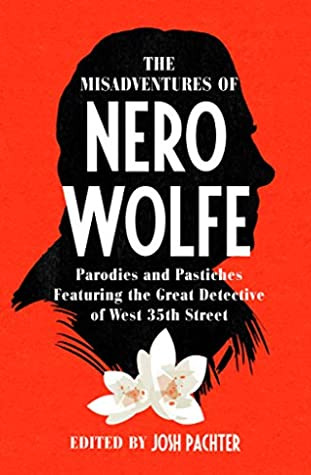
Subtitled: Parodies and Pastiches Featuring the Great Detective of West 35th Street
I loved this collection of stories, with only a few exceptions. Overall, I would give it 4.5 out of 5.
Introductions: Trouble in Triplicate
“At Wolfe’s Door” by Otto Penzler ~ about the characters.
“A Family Affair” by Rebecca Stout Bradbury ~ Rex Stout’s daughter provides a peek at the author.
“Plot It Yourself” by Josh Pachter ~ how the collection came to be.
Pastiches (Respectful imitations of the original works)
“The Red Orchid” by Thomas Narcejac
Translated from French, the story was written in 1947. The first English publication wasn’t until 1961. A young woman comes to hire Wolfe to discover who is trying to kill her uncle, a man who claims to have developed a red orchid. More creepy than respectful, especially how Archie hits on the female client. Too offensive for me. DNF
“Chapter 8 from ‘Murder in Pastiche’” by Marion Mainwaining
Published in 1955, this novel can also be found under the title of “Nine Detectives All at Sea”. A notorious gossip columnist is murdered during a sea cruise across the Atlantic. There are nine famous detectives on the ship as passengers. Trajan Beare, aka Nero Wolfe, is the focus of this particular chapter. It is hard to judge the whole book based on just one chapter. However, the characterization should be noted as being extremely close to the original source material. A nice read. No rating as it is just an excerpt.
“The Archie Hunters” by Jon L. Breen
Written in 1968, but never published until now. A cross of Nero Wolfe and Mike Hammer. Mock Himmler beats the crap out of anyone he encounters, particularly if they disagree with him or do something he doesn’t like. After beating up a news seller for carrying a “commie” magazine, Mock discovers an ad in the back requesting a private investigator for a missing person case. The ad, placed by Nero Wolfe, leads Mock to presume the missing person is Archie Goodwin. I’ve never been a fan of Mike Hammer nor his creator, Mickey Spillane, finding both of them to be disgusting in their love of violence, misogyny, and attitudes in general. I did enjoy this story nonetheless. 4 out of 5
“The Frightened Man” by O. X. Rusett
Gave up early on this anagram-stuffed story, even to the author’s name. More annoying than clever or cute. DNF
“Chapter 1 from ‘Murder in E Minor’” by Robert Goldsborough
I read the whole book when it was first published and, frankly, wasn’t too impressed. I do know that Goldsborough was selected by the Stout Estate to be the official author of the novels and I have read a few of his more recent books. I may try and reread it sometime down the road to see if my opinion has changed. No rating as it is only one chapter.
“The Purloined Platypus” by Marvin Kaye
While Goldsborough has the exclusive novel rights, Kaye asked to write short stories and was given the Estate’s permission as long as no novels were ever written. Benjamin Moultrie, president and board chairman of the Museum of the Strange, Odd and Peculiar, wants to hire Wolfe to investigate a robbery at the museum. As I wasn’t reading the magazines such as Ellery Queen and Alfred Hitchcock, I missed reading any of these stories. Which is quite a tragedy. Excellent portrayals of not only the characters, but the case itself. 4 out of 5.
Parodies (Exaggerated imitations intended to poke fun at the source material)
“The House on 35th Street” by Frank Littler
Originally appeared in The Saturday Review in 1966. Little is known about the author, despite Pachter’s research attempts. A crowd is assembled in the Brownstone in a murder case, wanting to see some of the detective’s famous actions and quirks. There is an undercurrent of a very personal nature, especially at the end. 3.5 out of 5
“The Sidekick Case” by Patrick Butler
Another entry from The Saturday Review, this time in 1968, and another case of little information on the author. Wolfe objects to Archie being called a “sidekick” in a listing of the latest book. Cute. 3.5 out of 5
“The Case of the Disposable Jalopy” by Mack Reynolds
America has turned into an illiterate welfare state, Wolfe and Archie are old and sometimes forgetful, and things are beyond tight financially. Reynolds uses the last names of some of the biggest authors in Science Fiction in the story. These men want to hire Wolfe for a case of sabotage and the disappearance of a key developer. What a weird world Reynolds has built. As to the updates on the normal cast of characters in the series? Well, I never liked Orrie anyway. 4 out of 5
“As Dark as Christmas Gets” by Lawrence Block
An unpublished manuscript written by Cornell Woolrich is stolen during a Christmas party. The owner hires Wolfe wannabe Leo Haig and his Goodwin substitute, Chip Harrison, to recover it. I’ve come across stories in this series before and loved them, both for the obvious affection for the source material as well as the excellent characterization. 4.5 out of 5
“Who’s Afraid of Nero Wolfe?” by Loren D. Estleman
Arnie Woodbine, currently on parole, was fired from his last job for gambling on company time. He needs a job and finds an ad looking for an assistant sharp of wit. He finds himself hired by Claudius Lyon, a corpulent man with delusions of being Nero Wolfe. Arnie is hired as his Archie. Now all they need is a case. Since Lyon doesn’t have a private detective license and Arnie’s felony record prevents him from ever getting one, they would not be able to charge for their services. No problem as Lyon is actually quite wealthy. Their first case is regarding a poetry award that carries with it a $10,000 prize. One winner doesn’t appear to actually exist. Seriously one of the best sendups that I’ve ever read! This was a delight to read and deserved more stories. 4.5 out of 5.
“Julius Katz and the Case of Exploding Wine” by Dave Zeltserman
A friend of Julius’ that has a champion bulldog and heads a dog food company comes to see Julius with the dog in tow, asking for help to find someone to prevent Brutus from being kidnapped. He also asks that Julius find his murderer if he’s killed. Sure enough, the man is killed. Julius had agreed to investigate, but only after he gave the police a week to solve it themselves. Just as the week is up, an adversary calls to warn Julius that there is a bomb in his house, contained in a box of wine. Julius allows almost everyone to believe he is dead after the townhouse is completely destroyed from top to bottom. I absolutely loved this sorta tribute to Rex Stout. I’m particularly intrigued by Archie, an AI who is installed in Julius’ tie pin. That alone has me eyeing the book collections, but to be honest, this is a damn fine mystery. Julius is definitely not Nero Wolfe, at least in size, athleticism (martial arts), and loving women (a former womanizer who now has a regular girlfriend). He definitely is in the aspects of intelligence, laziness, and cutting Archie out of the loop. His collecting focus is wine rather than orchids, but both can be very expensive hobbies. 4.5 out of 5.
“The Possibly Last Case of Tiberius Dingo” by Michael Bracken
Age and diet are catching up to Tiberius Dingo’s body, but his mind and deductive reasoning is still as sharp as ever. His long-time assistant, Jughead Badloss, brings a client he dances with at the Senior Center, a woman who is certain she is being stalked. Family ties and age-old secrets are ripped out into the open before the case is done, for their client and for Jughead himself. The names are a little lame, but the story made up for it. 3.5 out of 5.
Potpourri
“The Woman Who Read Rex Stout” by William Brittain
Gertrude Jellison was the fat lady at a carnival sideshow, an intelligent woman whose extreme weight, over 500 pounds, kept her from her dream job of teaching psychology. Her partner, Robert Kirby, is the thin man, barely weighing seventy-five pounds. As a stunt, the carnival boss gave her Rex Stout’s Nero Wolfe books to read during the shows. Surprisingly enough, Gert loved them and continued reading. She never expected to use what she learned to solve a murder, but sadly a newer member of the troup, a beautiful woman named Lili who was like a daughter to Gert, is murdered and the older woman knows she can solve the crime. This is a character that I could seriously have loved to read more about. A good little mystery as well, even if I quickly realized who the murderer would turn out to be. 3.5 out of 5.
“Sam Buried Caesar” by Josh Pachter
Police inspector Griffen had eleven children, each of whom was named after a famous fictional detective. Nero, just eleven years old, had set up his own detective agency, aided by his best friend and neighbor Artie Goodman. Their latest client, Sam, came to them after his dog, Caesar, was hit and killed by an out-of-state driver. Not wanting the poor animal to be left coldly abandoned on the street, he buried the dog in an empty lot. Coming back a short time later to get Caesar’s collar, the body is missing. He hires Nero and Artie to find the killer and recover the body. Sad and cute and inventive, but how Artie puts up with Nero will always be a mystery. 3.5 out of 5.
“Chapter 24 from Rasputin’s Revenge” by John Lescroart
The basic premise is that Nero Wolfe is the son of Sherlock Holmes and Irene Adler. I’ve not read this particular book, but it appears to be the last chapter in which Archie and Wolfe, going under his original name, are in Russia, appeared to have come up against Gregori Rasputin (although the author has it as Gregory), and was helped by Holmes and Dr. Watson after they were wanted for murder. I’m not going to rate it as I don’t consider it fair to rate a novel based on just one chapter.
“A scene from Might as Well Be Dead” by Joseph Goodrich
Adaptation of the story into a play. Once again, not rated.
“The Damned Doorbell Rang” by Robert Lopresti
When their fourteen granddaughter came to visit in a snit because her parents won’t allow her to go with friends to a concert in New York City, Eve and Jack decide to tell her about why they left the City. When they were younger, they had a brownstone in the City. Their neighbors were definitely different, all men living there. Jack didn’t much like any of them and keeps disparaging Eve’s stories about what they saw while living there. But Eve tells a tale of how she saved the men’s lives. Too many close calls are the reason that they moved to New Jersey. How could I not love this outsider’s look at Nero Wolfe? 3.5 out of 5.
#book review#Nero Wolfe#collection#The Misadventures of Nero Wolfe#Josh Pachter#mystery#short stories
5 notes
·
View notes
Text
Listed: Tim Stine

Photo by Santiago Covarrubias
If a musician’s test is the ability to project an individualized sound, guitarist Tim Stine has passed the test. Stine moved to Chicago a dozen years ago after growing up in North Dakota and studying in Minnesota and Ohio, and since then has followed the city’s pathway to relevance by working as a concert series organizer and an astute sideman as well as an idiosyncratic presence on his instrument. His winding compositions don’t fall easily into either the straight ahead or outside camp, any more than his playing falls into the trap of gratuitously flashing technique. On Stine’s two most recent records, the trio date Fresh Demons (Astral Spirits) reviewed here by Tim Clarke and the quartet session Knots (Clean Feed), he develops his melodies patiently, but spikes them with reversals, dissonances and tempo change-ups that’ll keep you leaning forward just to catch where he’ll go next.
Michael Gregory Jackson — Clarity
youtube
Michael Gregory Jackson is one of my acoustic guitar heroes. Compositionally, I don’t think we have much in common, but I have been poking around with his improvisations for years. This record is my favorite of his, and features Oliver Lake (who I also love to listen to), Leo Smith and David Murray. I was introduced to this album by some older musicians in Chicago, whom I respect very much.
Experimental Sound Studio — The Quarantine Concerts
Lots of great stuff coming out of ESS since the pandemic started. It has made me feel connected to music (again) in a way that I haven’t felt since this all began. Please tune in and donate if you can.
Summer Walker — “CPR”
youtube
I love modern R&B. Summer Walker has all of the stuff I like about 80’s classics (she has a light Sade vibe), but is of course very modern too. Her Last Days of Summer recording is my favorite pop music of the last 3-4 years. Nobody better ask me to do an R&B record, because I’ll do it in a second. (I know that won’t happen).
“Justice in June” — A resource compiled by Autumn Gupta with Bryanna Wallace’s oversight for the purpose of providing a starting place for individuals trying to become better allies
A friend sent this to me recently, and I’ve found it very helpful. This is a Google Doc that was put together by friends of friends, and it’s arranged by how much time you have to spend each day to educate yourself on how to be a better ally. It’s 15 pages and plenty of links, and even weekly plans. There are books recommended and talks and other things, but what I can appreciate most about it is that they have also included action items. Who to call, who to write, and what to do? Here is a great place to start, if you haven’t already.
Rob Mazurek and Jeff Parker Duo — Live @ Serralheria, Sao Paulo on Dec 17th, 2013
youtube
I’ve spent a lot of time with these two individually and as a duo too. This is a beautiful snippet from a performance in Brazil from 2013. This hints at so, so many styles of music and sound. I don’t care what kind of music it is. What have these two done and still do for Chicago music? There’s no telling. Also, shoutout Rob’s Octet Galactic Ice Skeleton, with hero John Herndon on drums, and Jeff’s The Relatives, my favorite Chicago guitar record.
The Melvins — Ozma
youtube
What can I say? I’m from North Dakota and there’s a lot of metal and metalheads. When a kid turns 15 in North Dakota, they are issued a copy of Lysol and Houdini. I love those recordings too, but didn’t find this one until much later. It’s everything I love about them, but better. The sort of crappy recording quality adds to its ‘it'. DRUMS!
Jon Hassell — “Last Night the Moon Came Dropping its Clothes in the Street”
youtube
Modern trumpet/sound master making deeply creative music in his 70’s at the time this was filmed. I first heard the ECM album that this tune is from right when it came out 10 years ago, and it hasn’t left my mind the whole time. Sometimes I can get dragged down by the influences I hear in music and here, I do not care at all, I just want to hear this. Fourth world music.
Joe Lovano — Rush Hour
youtube
A friend played this for me recently. Gunther Schuller arranged and conducted everything on here. I love his arrangements on the John Lewis album, The Modern Jazz Society Presents a Concert of Contemporary Music. My mother is a choral conductor and I’ve long been fascinated with the use of voice compositionally. It’s perfect here. especially on “Prelude to a Kiss.” This whole album feels like a dream. Lovano plays like how I think I play when I’m dreaming.
Luther Vandross — “A House is not a Home”
youtube
This is vocal mastery. Everything about it is perfect. I cry every time I hear this. There is no vocal pop music that hits harder than this. No autotune, not a bunch of production bullshit. His band (on his most famous records) would record the track and then Luther would come in and sing along and do the take. Check out this interview with Nat Adderley Jr. and Marcus Miller about their experience with him.
Paul Desmond (with Jim Hall) — “Easy Living”
youtube
There are a bunch of these records, and I’m sure you’ve heard at least a few of them; Bossa Antigua, Desmond Blue, Easy Living, and Glad to be Unhappy are my favorites. The link above is “Easy Living,” from the record of the same name. I can understand if you don’t like this — or lots of other things on this list — but it speaks to me. This has calmed me in ways I didn’t expect to be needed to be calmed over the years.
#dusted magagzine#listed#tim stine#michael gregory jackson#experimental sound studio#The Quarantine Concerts#summer walker#justice in june#rob mazurek#jeff parker#the melvins#jon hassell#joe lovano#luther vandross#paul desmond#jim hall
2 notes
·
View notes
Text
TMA Retro 4: Page Turner
I was touched to see some tag commentary on yesterday’s post! Honestly, it gave me an emotion - I am traditionally very anxious about engaging online, it speaks to my immense love of TMA that it brought me to Make A Post At Last. It’s very affirming and reassuring to get some response to my lunatic treatises. Y’all are all right. 💜
Anyway, grab some lighter fluid and a sturdy wastepaper basket, time to torch your haunted novel in MAG 4: Page Turner
It’s ironic that this statement is about the Vast when it is one dense motherfucker. so many dangling plot threads are introduced here, each ready to hook you and start reeling. we’ve been into the meta plot since episode one but this episode is the first time the audience is made aware of such.
seriously: Jurgen Leitner and his library, Gerard Keay and Mary Keay, Michael Crew. the figures introduced in this one thirty-minute installment loom large over the rest of the entire run
you could, your first time through, even file this away as a one-off scary story if not for the fact that Jon knows what’s going on (enjoy it while it lasts, my son). He’s heard of Jurgen Leitner. He alludes to an incident with his library in 1994. Deeper than that, he immediately takes the statement at face value and treats the claims within it as authentic, which is a complete 180° on the first three episodes
and this is such a smart story choice? Jon shapes our perspective into this universe and up until now he’s been utterly dismissive of the validity of the stories he’s telling. To go from practically rolling his eyes to scheduling a meeting with his boss about tracking down more haunted books - that tells us that Jon takes this seriously as a threat. And that makes us take it seriously too, makes us take note that strange books are dangerous things in this world. Any offhand mention of books in future statements will be enough to make us sweat
And! It starts winding the narrative tension on a character level. Why and what does Jon know about Jurgen Leitner and his library? Why does he say his name with such venom? And if he’s so sure about the supernatural nature of these books, why is he so loath to believe the other statements?
(and then it takes 80 + episodes to fully answer these initial questions. Jonny enjoys a slow roasted torment)
love that the statement giver presents, as proof of his iron-clad sanity, the fact that he works as a theatre technician. speaking as someone with an unfinished theatre degree: theatre people are feral my good buddy, try again. I mean, we refuse to say the name of one of the most famous plays in the English language because we think a ghost will trip us for the indiscretion. this is not the trump card you think it is.
a quick sidebar for the Red String Brigade: The Trojan Women is an ancient Greek tragedy that involves a baby being thrown off a city wall. The Seagull’s first published English translation was done by Marian Fell, and also a seagull is a bird and birds can fly. Much Ado About Nothing is very good and you should all watch the version from 2011 with David Tennant and Catherine Tate.
it’s interesting that these early episodes seem to take a cue from urban legends in some respects. Nathan Watts gets extremely drunk at a party and then is almost skinned by a monster while having a smoke. Joshua Gillespie is approached while engaging in a whirlwind of debauchery and has to take care of a cursed coffin after accepting money for what he thinks is a drug trafficking gig. Amy Patel regularly spies on her neighbour for her own entertainment and then has to watch him be replaced by a malevolent entity only she can perceive. and now Dominic Swain pushes past his guilty conscience to score a valuable book off an unknowing charity shop and...gets a bit dizzy and haunted by a phantom stink for a few days then gets £5,000, well anyway, the point is he got spooked! spooked after doing something kind of iffy! that is pure urban legend procedure; modern day fairy tales imparting dire consequences onto societal transgressions. in a horror story this structure offers a false sense of safety - if you’re a good person, the monster won’t come for you. I can’t recall which upcoming statement yanks the rug out from under us with the first completely random victim.
cannot comprehend how this guy didn’t start plugging the book into google translate the second he got home. that probably saved him from being taken by the book but I am still judging him for not even trying it. yeah you’d be sucked into some sort of sky hell but at least you’d know what’s in the book!! could never be me
(yes I am aware in this universe I would have been eaten years ago. I’ve made my peace with that)
grbookworm1818 slays me. I don’t know which is better, the idea of Gertude carefully curating the most sixty-five-year-old-on-goodreads username she could as a cover for her cursed purchase history, or her actual sixty-five-year-old brain just expressing itself naturally because Gertrude is a very busy woman who doesn’t have time to immerse herself in the ins and outs of internet culture, she just wants to buy the demonic tomes she’s selected for destruction and get on with her day thanks.
did Gertrude know what a meme was? which Archivist could convincingly pose as a millennial best, Gertrude Robinson or Jonathan Sims?
The Key of Solomon and its former keeper, Samuel Liddell MacGregor Mathers, are both real historical figures. the book is basically Renaissance-era magical au fanfic of the Bible, and the man was a 19th century British occultist (and likely drinking buddy of Jonah Magnus) who founded a Very Serious Secret Society. this is a picture of him whiiiiiich rather dispels any sense of menace he’s meant to invoke. what kind of cosplaying nonsense
Mary Keay is such a striking figure. “She was very old and painfully thin, but her head was completely clean shaven, and every square inch of skin I could see was tattooed over with closely-written words in a script I didn’t recognise.” a Look, a vision!
I’m guessing that Our Gerard was blasting heavy metal at 2 am to try to drown out his undead mother while waiting for her manifestation to dissipate. I like to imagine him frequenting Reddit advice posts about dealing with toxic family members, poor lad
oh my gosh Mary refers to Gerard as “her Gerard” is that where Jon got “our Gerard” from?? I feel betrayed??
whatever, I’m reclaiming it. Our Gerard is meant with affection now babey!
the eye portrait is a bit puzzling. the inscription - ‘“Grant us the sight that we may not know. Grant us the scent that we may not catch. Grant us the sound that we may not call.”’ - could almost be read as an invocation against the Eye? But in general Gerry is fairly Eye-aligned, so...shrug emoji
(honestly my main takeaway from the eye portrait is that it’s finely detailed and near photorealistic so we can add “tortured artist” to our list of Gerard Keay traits and is it any wonder that he’s so Fandom Beloved?)
Mary is Not Good at negotiating sales. her main technique involves terrible tea, bringing up repressed childhood trauma, and getting her magic book to drop animal bones onto customer’s shoes. I’m guessing Pinhole Books was in bad shape even before the police investigation and murder charges.
hahaha, the Vast pushes Dominic down the stairs. classic. you gotta grab what opportunities are available
so did Gerard have to follow Dominic back to his flat and wait awkwardly on the doorstep at like 3 in the morning, hoping none of his neighbours would notice and call the cops
the revelation that Mary’s been dead the whole time! this episode may be more intent on world building and plot set-up but damn if it isn’t still a good little ghost story.
kind of rude of Gerry to just burn a book in this guy’s flat without asking and then steal his wastepaper basket.
Jon may not call the statement giver a liar for once, but never fear, he’s still our petty bastard man. accuses Gertrude of filing statements without reading them, has Sasha double-check Martin’s research, grumps about his general misfortune . he’s stressed from the Archives’ disorder and having flashbacks to a certain picture book but by Jove, that won’t stop him making snide comments on what’s supposed to be an official audio transcription!
#tma retro#the magnus archives#tma spoilers#tma meta#I love love love all the little dominos being set into place in this episode#but I am looking forward to an episode about the Vast that really dives in deep#(pun absofuckinglutely intended)
16 notes
·
View notes
Photo
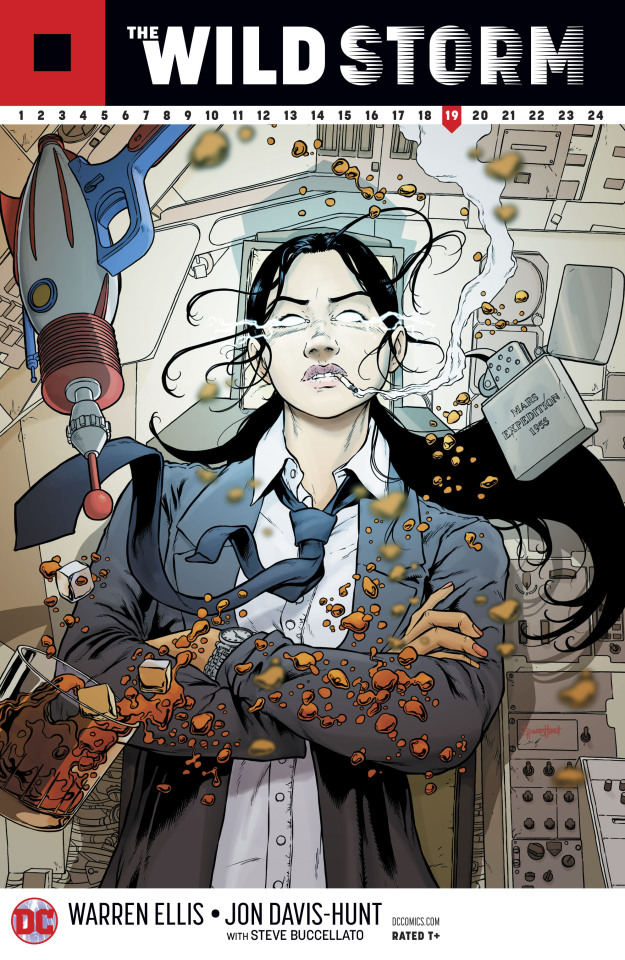
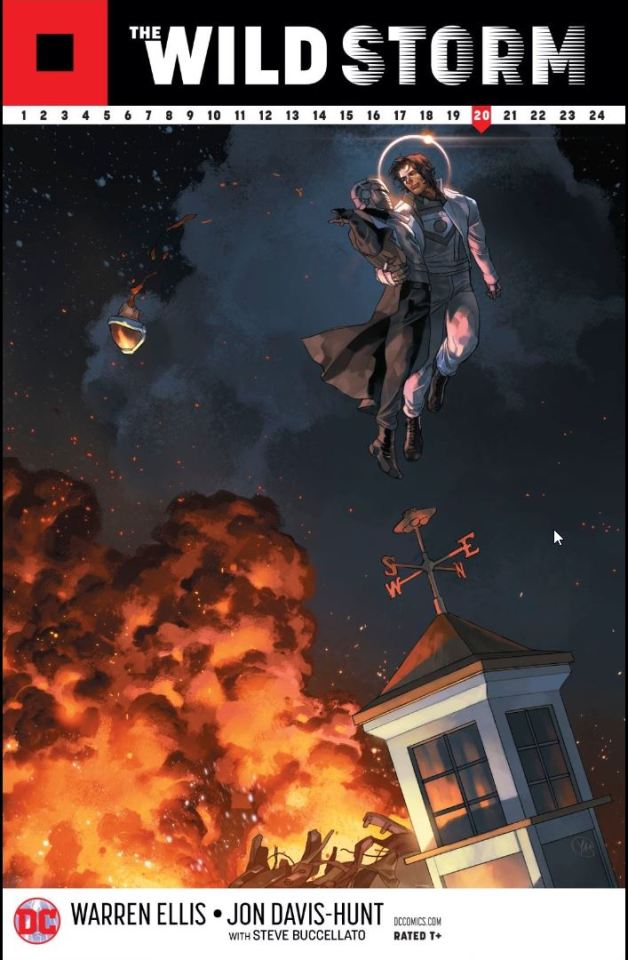
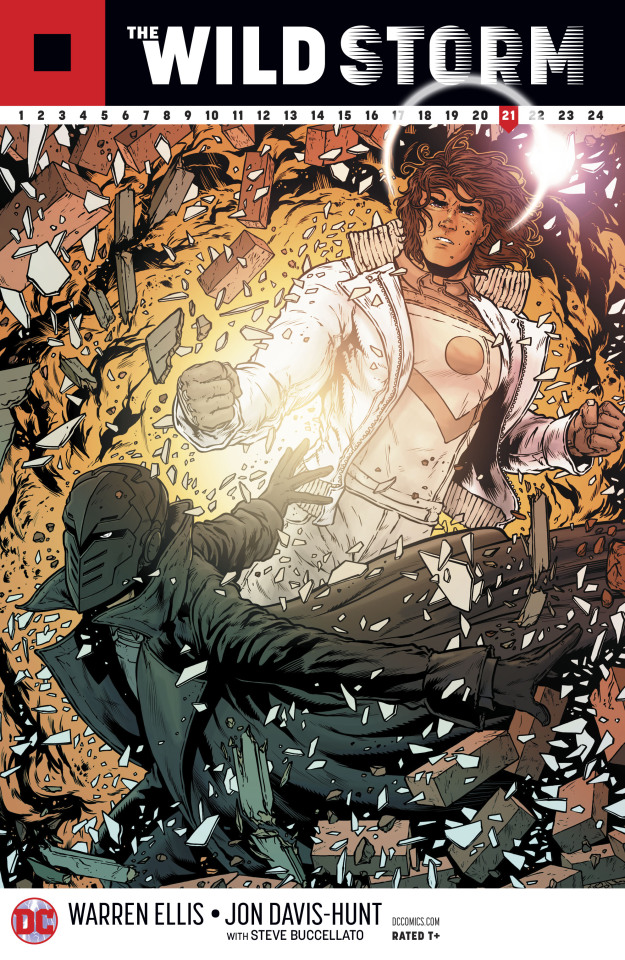
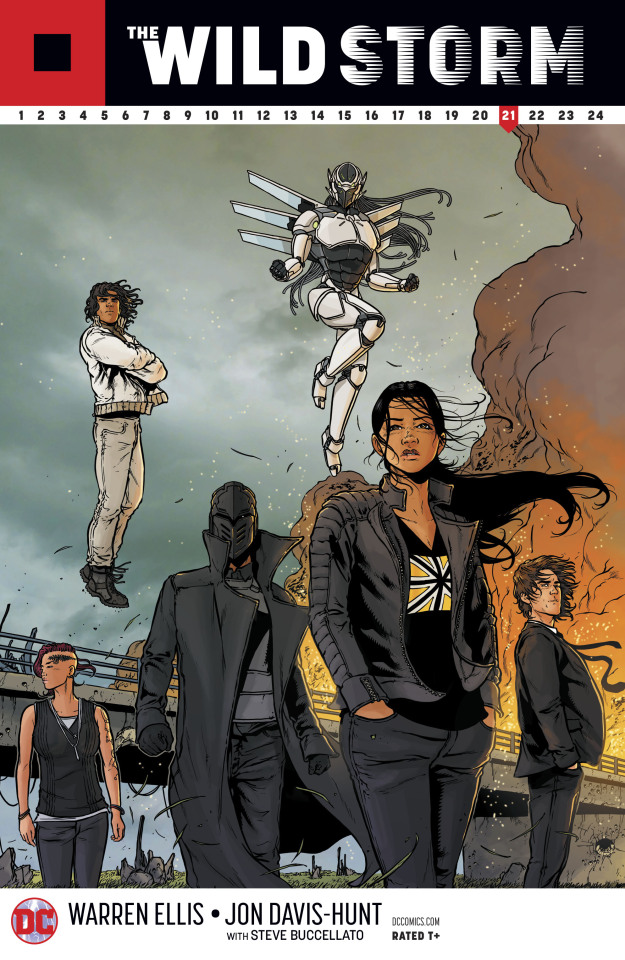
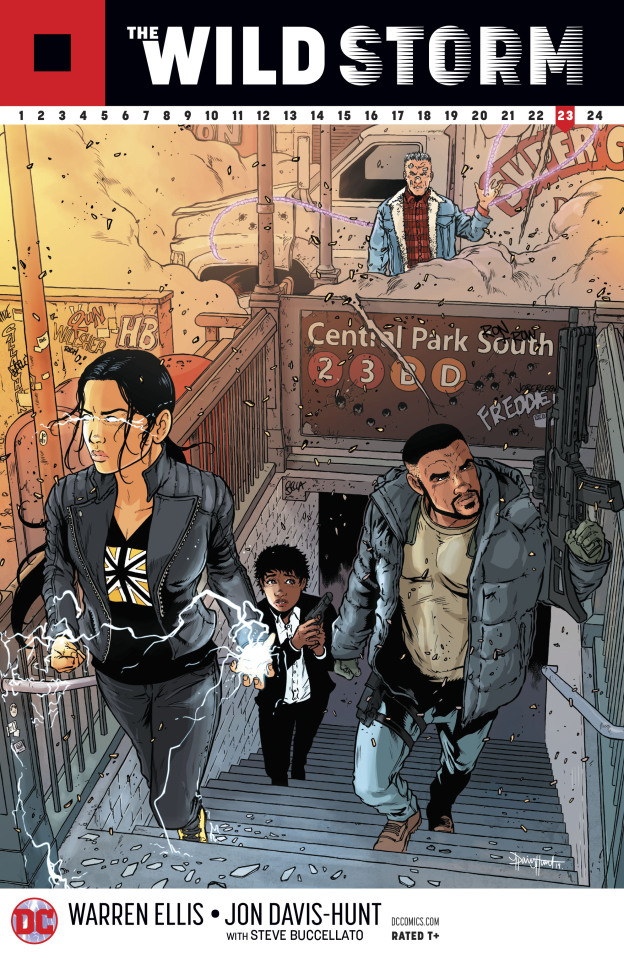
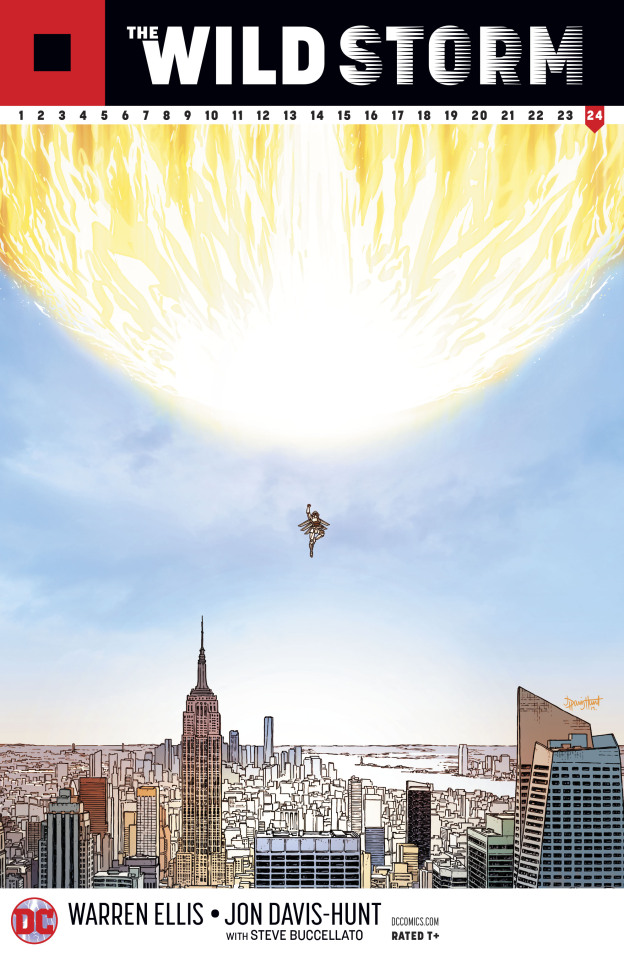
THE WILD STORM #19-24
MARCH - SEPTEMBER 2019
BY WARREN ELLIS, JON DAVIS-HUNT AND STEVE BUCCELLATO

SYNOPSIS (FROM DC DATABASE AND COMIC VINE)
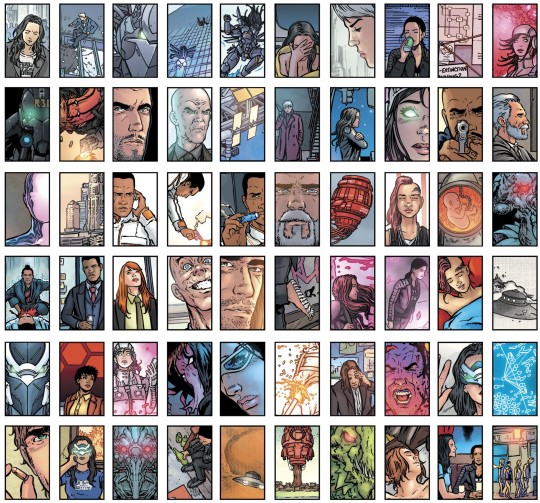
In her London flat, Jenny Mei Sparks is telling her three new friends the story of her life over a few bottles of beer. It is a tale of adventure, righteousness, improbable encounters with famous people, and quite a lot of sex. She has been talking for thirteen hours and has still only gotten to 1955. By that year, she had joined Skywatch, a secret organization founded in the 1930s to guard against potential alien invasion. To that end, they needed a forward base on Mars. Their technology was formidable, their mission noble in theory... but Mars was a boring wasteland, and its lack of a magnetosphere meant that most of Jenny's crewmates developed cancer from stellar radiation exposure.
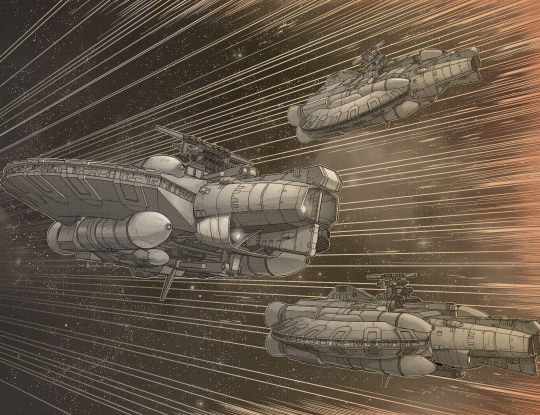
The mission had swiftly built its bases underground, shielded by the red dirt of Mars, but the base was also boring, and when Jenny came home, she left Skywatch, judging it to be "full of maniacs"... and to have only gotten worse since then. Skywatch has a set of agreements with IO, the shadowy intelligence masters, which mean it has to remain hidden, but as time goes on, the current leader of Skywatch, Henry Bendix, becomes more eager to use his technology to reshape Mars and Venus... and Earth. Jenny was sure a tipping-point would come, and it did - when Angie Spica used a jetpack suit made of IO and Skywatch tech to stop an IO assassin, in full view of a crowd, from killing Jacob Marlowe, a billionaire alien. Jack Hawksmoor interrupts, saying she didn't mention that. Jenny grins cryptically, and reaches for another bottle...
Elsewhere, the television news has gotten peculiar. Speculation about the New York Jetpack Incident. A report on a freak meteor strike which seems to be affecting the weather. A segment on the urban legend of the "billboard ghost girl". A segment on a serial killer dubbed the "Highway Ripper". A man speculating about a secret space program. An interview with Voodoo, where she describes her artistic side as a separate entity, her "daemon". And a news report about a township of fifty people, vanished in what the only eyewitness describes as an alien abduction...
In a large bed in a nice house, two men are watching that last segment on a phone screen. They conclude that it might be the work of Skywatch, who they escaped from together, but that if it is, something has made them brazen. One, dour as midnight, insists they must remain hidden, but the other, smiling like a Greek god, lists the actions of the dour one which have forced them to fight in the past. They will fight again this time, armed by preparation and buttressed by their love.
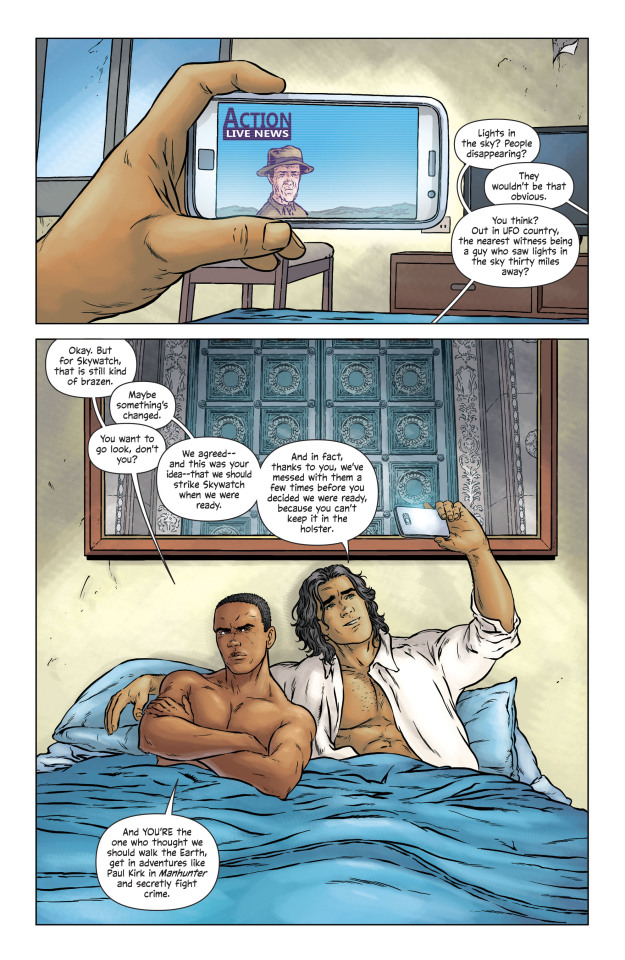
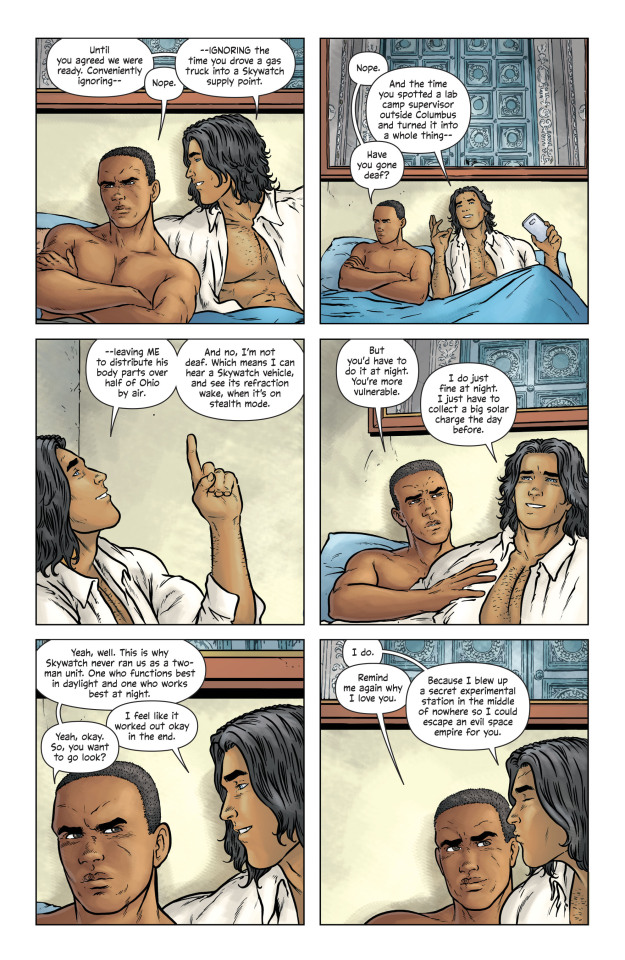
In the IO headquarters in New York, Jackie King is going over the estimates of Angie Spica's implants, wondering how she got it through IO's normal scanners. Ignoring a request that she attend a meeting, she orders an underling to prepare a report on their earlier DDOS on the Skywatch headquarters and whether they could replicate it.
Shen Li-Men is in the Hospital, the bardo realm where her predecessors as the Doctor reside. She says she has spoken to Jenny Mei Sparks and now she needs to know about the aliens. When they answer cagily, she insists that she cannot do her job unless they comply. So they tell her the tale.
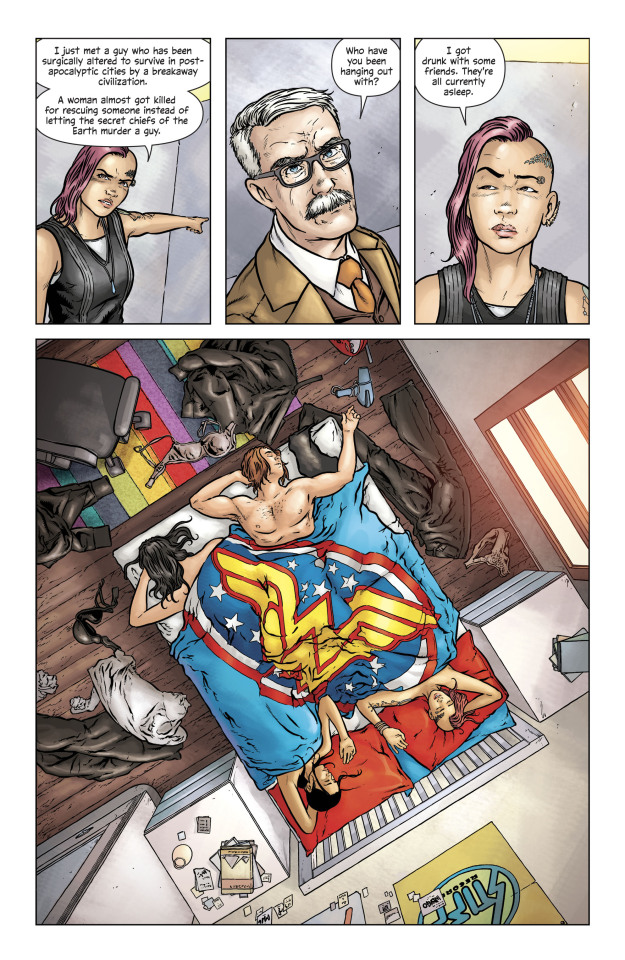
Once upon a time, there was an alien planet called Khera. On it, the dominant species formed a society which bound together five sub-species in a caste system. The Kherans search the galaxy for life-bearing worlds with tool-using natives, with the goal of conscripting those natives as "clients", or slaves. Due to the chaotic nature of the universe, tool-using natives are hard to catch before they are wiped out by chance or foolishness. The goal of the Kheran rulers is something called "forward escape" - to take their whole society from this plane of existence to one where life is easier to sustain. A Doctor has never learned how this would work, but it requires living beings, serving in free will. Once, a Doctor seduced John Colt, a Kheran soldier, and while he was sleeping read his mind to view what, mechanically, this would entail - a vision of Earth marked by three massive fire pits.
However, when the Kherans arrived, they discovered that they were not unopposed. They called these rivals "The Other", once. Now they are known as "The Daemon". The goal of the Daemon is gently inspire, shepherding humanity forward with a modicum of balance so they can escape extinction. Aiding them in this vocation is a device of theirs - the Shaper Engine, a machine that Li-Men saw in a metaphor in a vision. One of the things the Shaper Engine does is empower specific humans to serve as a defense mechanism - like Jenny Mei Sparks.
The interference of the Daemon stymied the Kherans' efforts enough that they fell to internal bickering. A faction of the Kherans tried to influence the culture of the Middle East by appearing as wise but fearsomely-visaged powers, recorded in legend as cherubim. Emp chose a different tactic - he gathered a cabal of underlings, scuttled the alien ship, and vanished in the ensuing explosion. The Kheran homeworld assumed the mission to be a failure, and wrote Earth off. Emp has hidden inside society ever since, pursuing his "Main Project" - to raise human technology to the level where it can petition to join the Kherans as equals.
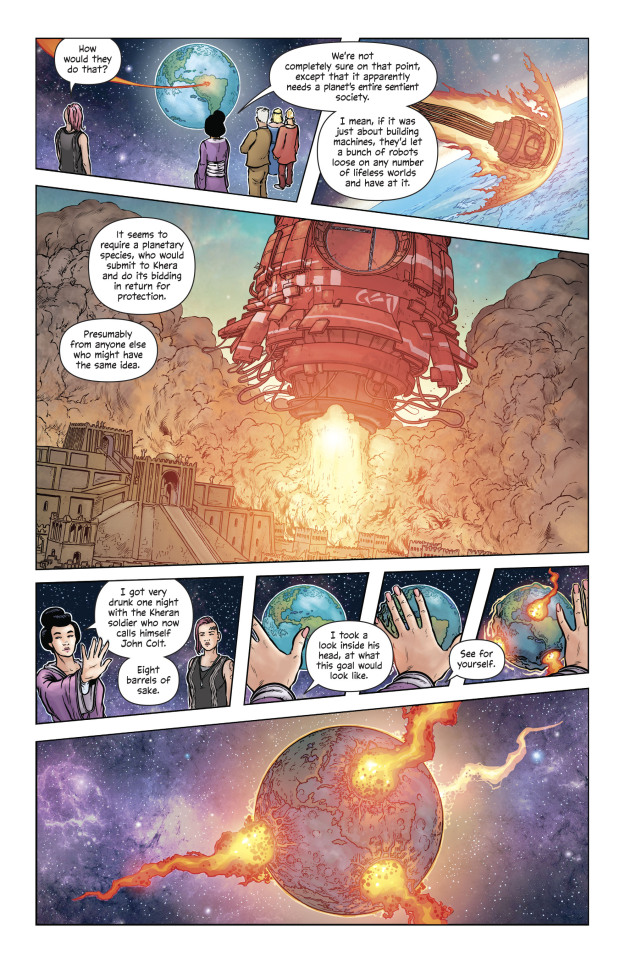
Today Emp pursues this mission using his resources under the alias 'Jacob Marlowe'. He sees far, but not far enough. He never grasped the reasoning of the Daemon. He did not anticipate that the marooned Kherans would spread competing philosophies and religions across the world, primed to oppose him. He did not anticipate how strong, or how strange, the humans could become. And he knows nothing of the Shaper Engine.
To conclude, the Doctors tell Shen Li-Men that a portentious storm is coming, a storm that may end the world. The Doctor that will have to oppose it will face a burden that no previous Doctor has ever had to bear, and that Doctor is her. And yet, they have an unbiased assessment of her skills and her compassion, which, with fortitude and spite and maybe a few friends, may be enough to see her through.
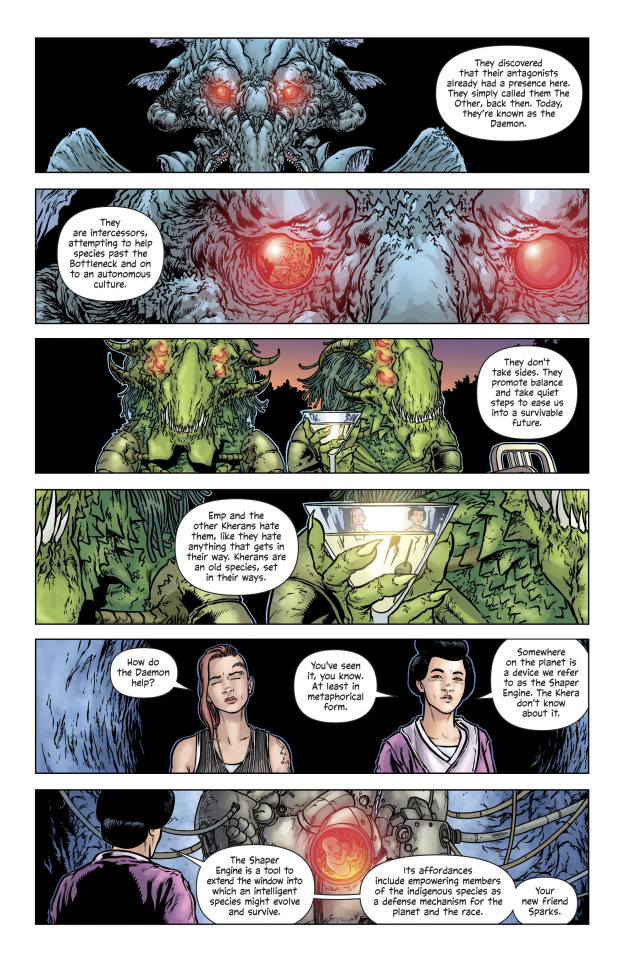
Skywatch intensifies its preparation for war, increasing its attacks on the planet. For some of these conflict zones, Skywatch’s greatest threat is not IO or conventional forces, but the people who escaped from its own experimentation camps. And the four people in London whom it knows little about, but who are preparing to take steps to alter the balance of the world.
The experimental subjects code-named Apollo and Midnighter have broken cover. Combat-optimized superhumans are now loose on the Earth.

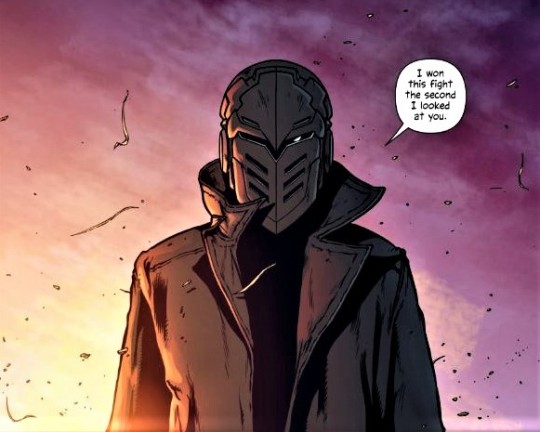
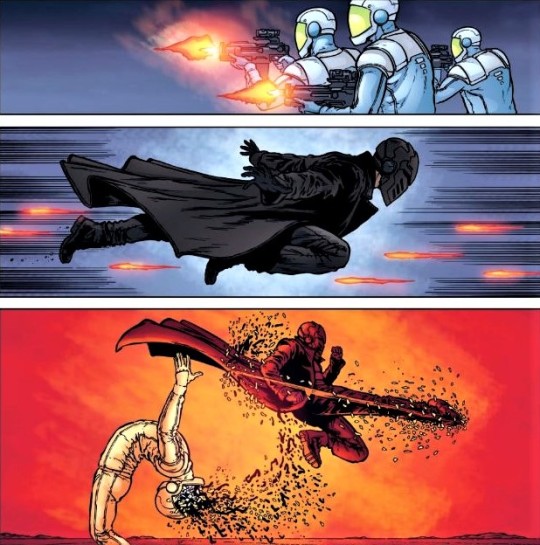
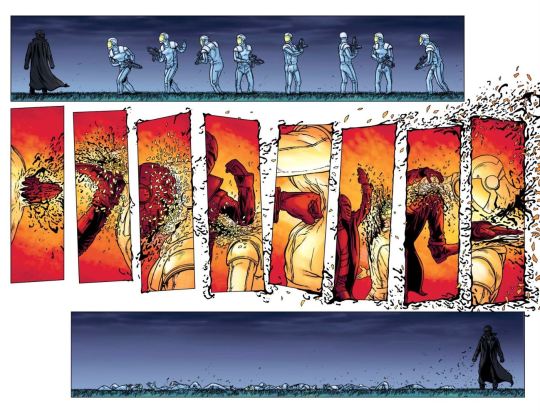
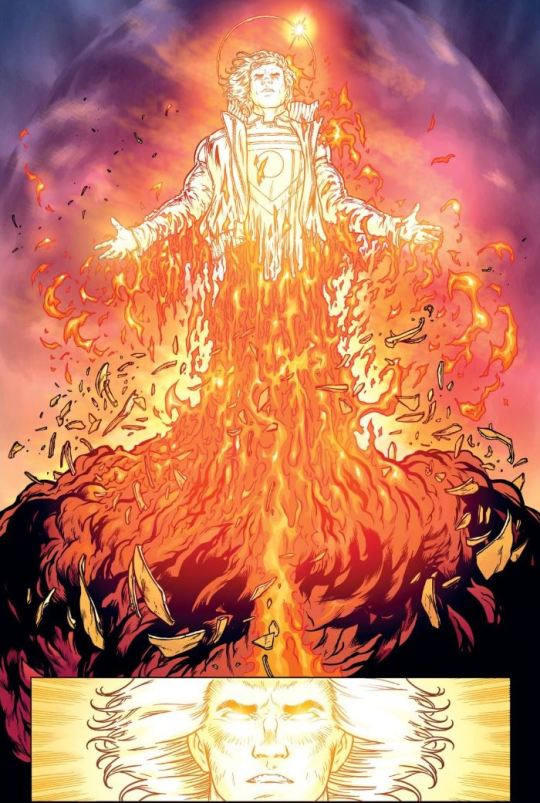
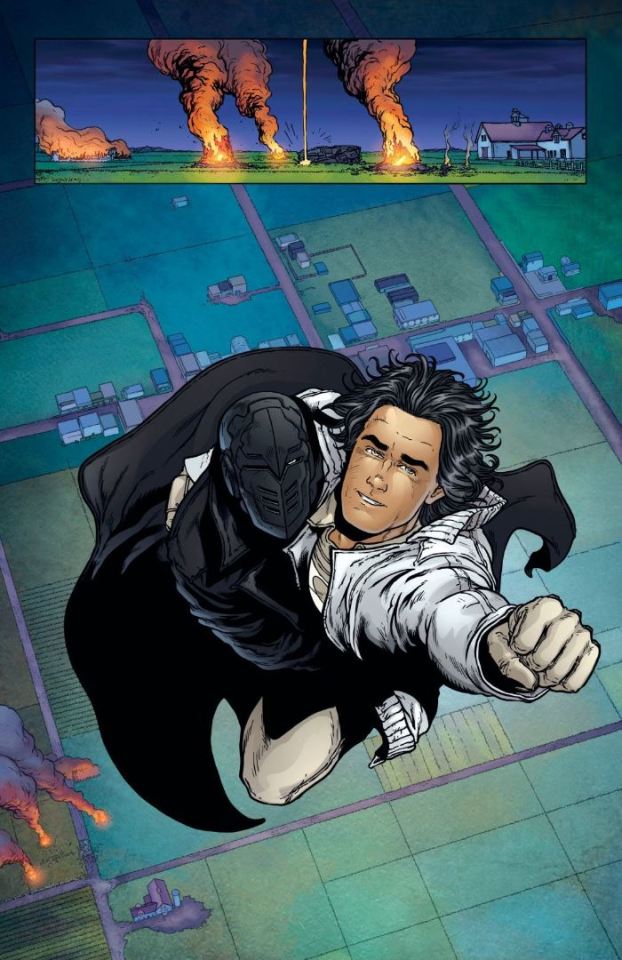
Jenny Mei Sparks has assembled a group of misfits and exiles, to stand against a corruption that covers the world and orbits above it.
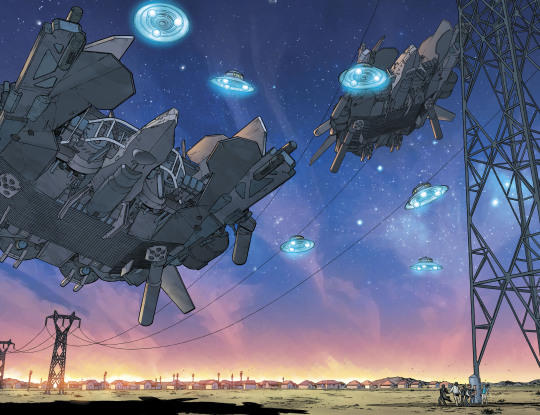
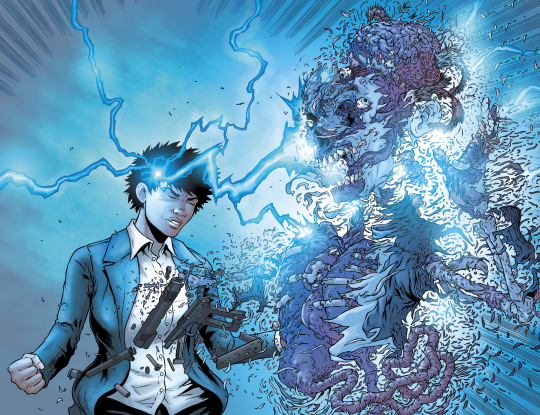
The storm of accidents, deaths, mistakes, confusion and anger has led to this. Miles Craven has lost his grip and Henry Bendix has lost his mind.
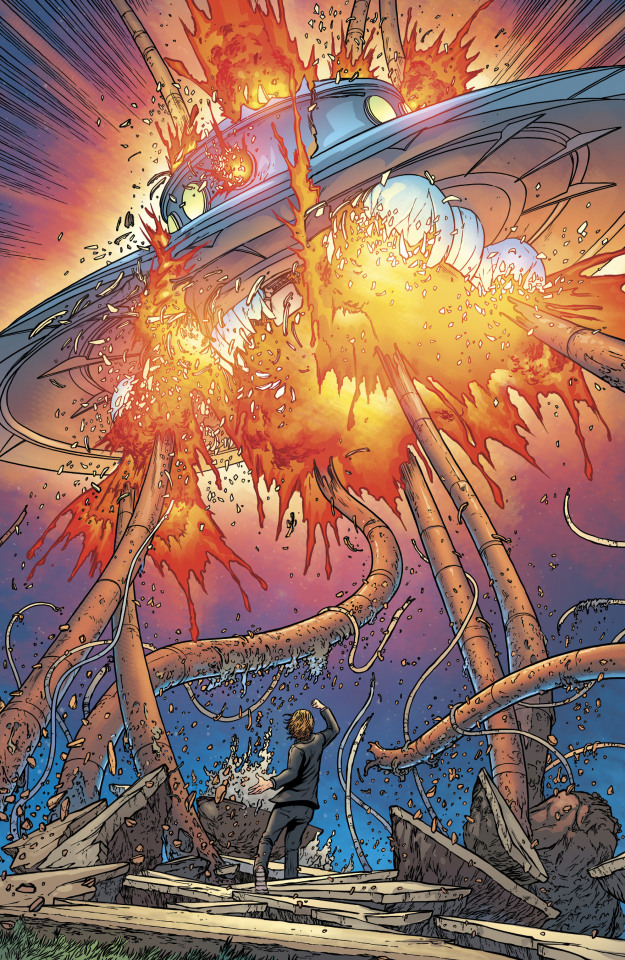
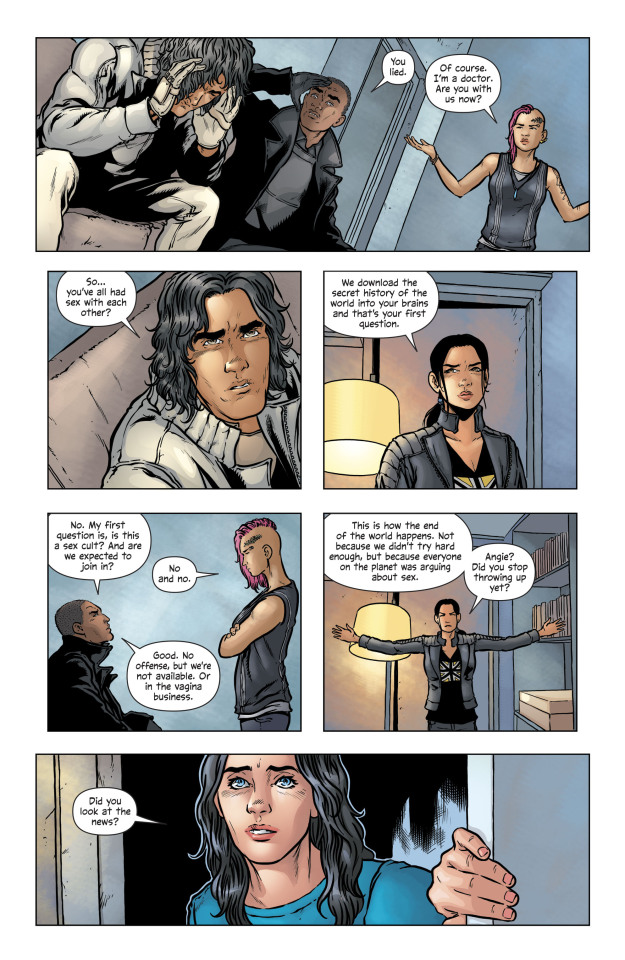
IO has betrayed the world, and Skywatch wants to burn it. The only people in the middle are Jenny Mei Sparks’ ragtag team of wounded orphans of the secret world.
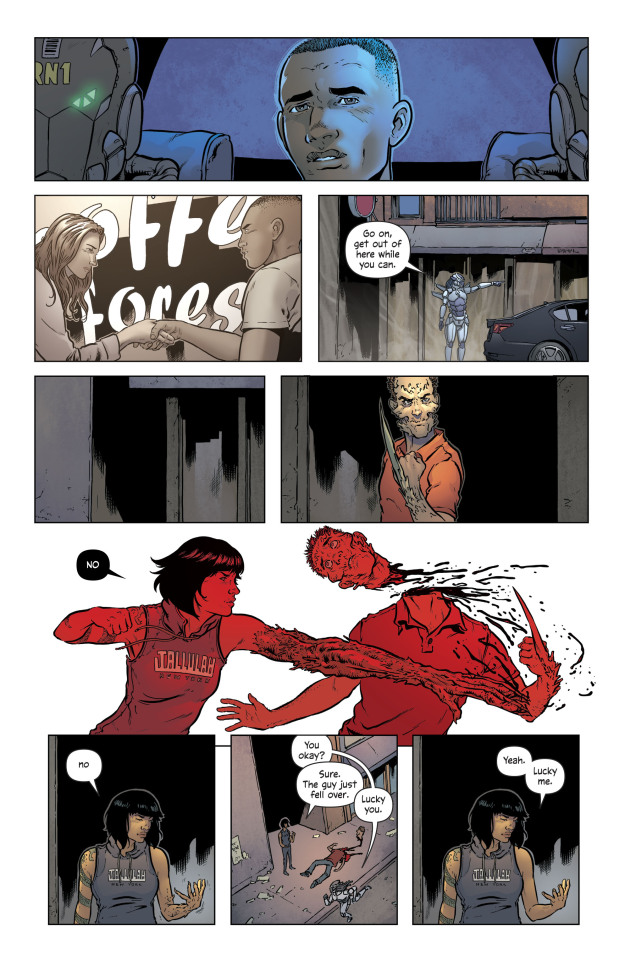
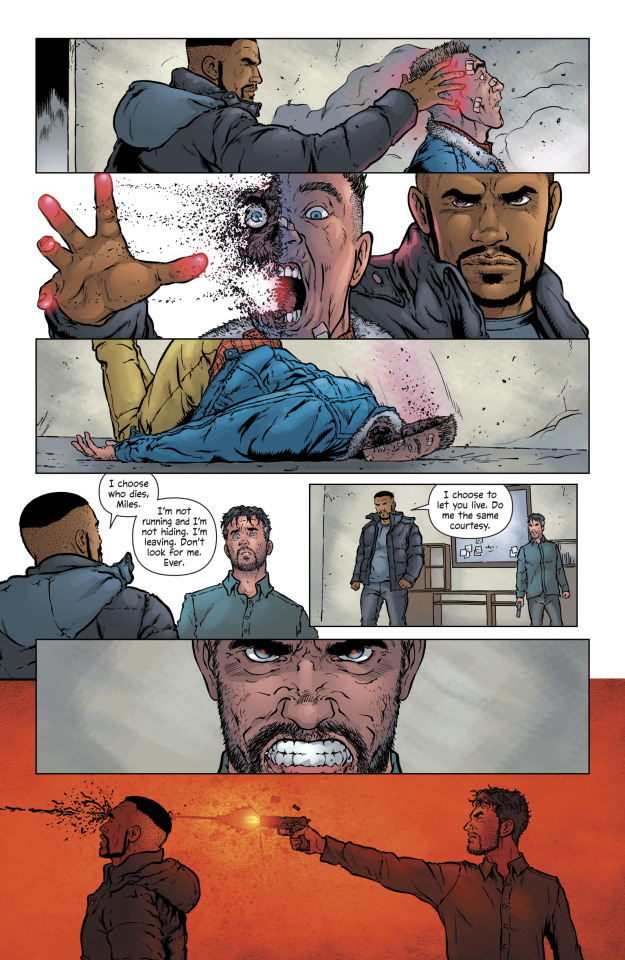
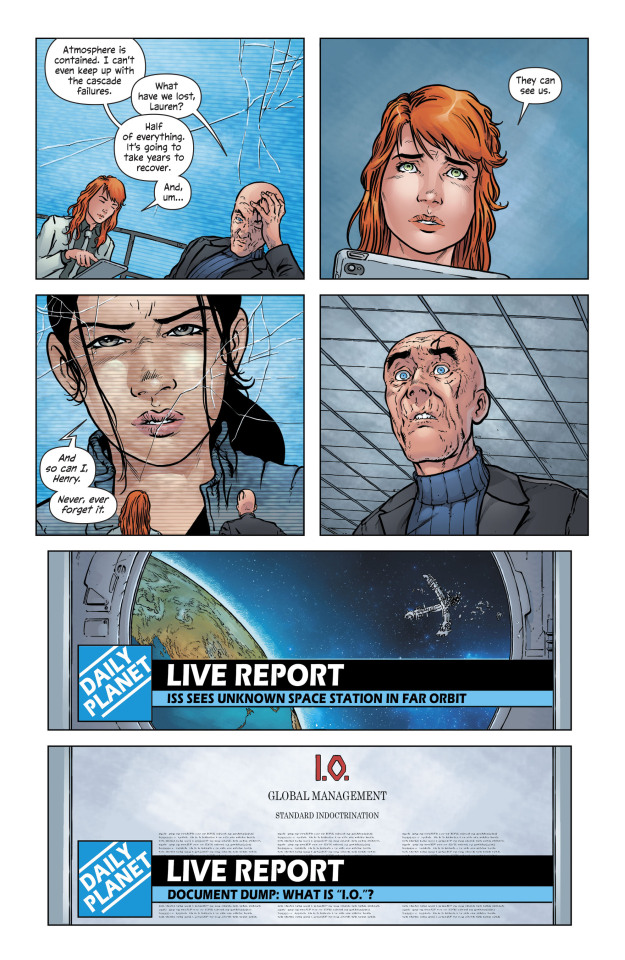
REVIEW
These last six issues are more action packed (it is a third act after all), and in general it feels like a pilot for The Authority (curiously enough, the next book announced was WildCATS but it was cancelled. May be re-solicited eventually. WildStorm has a very complicated history with runs that get cancelled, with the most obvious one being The Authority by Grant Morrison.
Anyway, the visuals and the story are very tight, and this is an amazing story to read. It just, takes you two years to get the whole thing. I feel like in the last 12 issues, I got more about the properties I knew more, and that may be the reason why I liked the last 12 issues more.
As I said in a previous post, this is a very long prologue, but a high quality one. Think of it as the “Man of Steel” for a new universe (the John Byrne one, not the one that made you stop reading Superman).
I had problems in the past with the way Apollo and Midnighter’s relationship was portrayed. At least, during the New 52/Rebirth era. I felt it pretty real in this run, or at least is more similar to what I experienced in real relationships. Their differences are big, but at the core, they shouldn’t get in the way of their love.
Voodoo was a gratuitous character throughout these 24 issues. She barely did a thing. Same with the way Michael Cray ended up dying in the last issue. He did have his own mini-series that I didn’t follow, but considering that Deathblow had a “healing factor”, I suppose he is probably not dead.
This story felt very sober sometimes, replacing super-heroes with regular people with powers, it’s a nice interpretation when every book around you has spandex and shiny armor.
There is spandex and shiny armor here too... but you know what I mean.
I give these issues a score of 9.
#jon davis-hunt#steve buccellato#wildstorm#the wild storm#dc comics#comics#review#post modern age#2019#stormwatch#wildcats#the authority#yasmine putri
8 notes
·
View notes
Text

I posted 3,554 times in 2021
634 posts created (18%)
2920 posts reblogged (82%)
For every post I created, I reblogged 4.6 posts.
I added 4,154 tags in 2021
#drops of qpiter - 2484 posts
#mythtakes - 328 posts
#the untamed - 299 posts
#marvel - 259 posts
#video - 191 posts
#spn - 141 posts
#loki show - 139 posts
#loki - 123 posts
#tma - 96 posts
#shut up myth - 94 posts
Longest Tag: 137 characters
#also yes that post was about kilo ren whomst i deeply hate and despise and whose ‘’’redemption arc’’’ was a joke undeserving of the title
My Top Posts in 2021
#5
personally i still can’t get over mori showing up in bedlam stacks. hilarious. crossover goals. what if people picked up tbs without reading watchmaker? and there’s just this kid in the middle of the book in a flashback who is like ‘im going to get your leg ruined so you can find love and keep a whole spiritual community secret from imperialists in 5 years’ and then he only comes back at the very end for a few pages to be vague and drop hints about his own book ????? it’s SO FUNNY the iconic behavior really jumped out mori keita cannot be contained
68 notes • Posted 2021-03-18 18:34:18 GMT
#4
parallel/contrast between peter lukas (died because he refused to relinquish the nature bestowed upon him by his fear god) and michael distortion (died because it wanted so badly not to be michael that it let the michael-part of itself betray its own nature by telling the truth and letting himself be understood thus allowing a more appropriately bloodthirsty avatar to take his place)
70 notes • Posted 2021-06-18 03:41:38 GMT
#3
hbnnnnnnnnnnn hnnynnnn goddd.....................michael was going to murder jon but it was only going to do so to stop at least one ritual (the way gertrude has taught m shelley to) AND even tho it went against everything it was, it still let jon compel it to give its statement truthfully....................WHY is comparatively no one onto this enemies to lovers bullshit it makes me literally insane
86 notes • Posted 2021-01-02 02:19:33 GMT
#2
favorite bit of michael foreshadowing was his last name being shelley bc 1) there were two famous shelley writers, mary AND percy, a horror/scifi trailblazer AND a romantic poet, two identities, two shelleys, which one is it, ACTUALLY it’s both, 2) frankenstein being about a brilliant but reclusive academic who creates a monster he can’t destroy, and “frankenstein” evolving to encompass both the creator and the monster ........ wow. so much packed into this one surname. i’m so glad michael was a series regular who got his/its due as an interestingly and intricately conceived antagonistic ally
105 notes • Posted 2021-04-01 14:11:23 GMT
#1
i think it’s the most delightful thing that of all the rowdy horny dnd podcasts that exist, it’s bombarded - a dnd podcast so pure that it once warned listeners that their song of the episode was based on a percy jackson-esque dam/damn pun - that is the one that’s having their 69th episode on 4/20
131 notes • Posted 2021-04-09 15:54:04 GMT
Get your Tumblr 2021 Year in Review →
#my 2021 tumblr year in review#your tumblr year in review#shoutout to the untamed for makin sure i dont look like a complete marvel dipshit!#second shoutout to michael shelley luv that hes the only character who makes me rebloggable
1 note
·
View note
Text
10 Best Movies of 2021 (So Far)
https://ift.tt/3iTu7sI
Can you ever really go home? Millions of cinephiles are likely asking themselves this as summer 2021 winds down with doubt again lingering over their favorite movie houses. For a time, theaters were once again open for big business in the U.S. and UK, and remain so in at least one of those venues. But box office reports paint an ambiguous future, and many casual moviegoers clearly remain reluctant about returning to the cinema.
Nonetheless, it’s still good to be back in those old familiar places, as well as to have an ever expanding list of options to discover on streaming. Compared to last year, 2021 feels like a sunny balm, particularly now that the heaviest hitters and biggest surprises of July and the dog days of summer have landed.
It’s why we typically save our “mid-year” ranking for that deep breath between the end of summer escapism and the awards season push that begins in September. There have been some real treats on the 2021 calendar, so whether you’ve seen the entire list below or are looking for something you missed, sit back and enjoy a collection of the best movies of 2021. So far.
10. Barb and Star Go to Vista Del Mar
Kristen Wiig and Annie Mumolo wrote and star in this bizarre, brightly colored, and utterly joyful comedy that defies expectations throughout. The two are middle-aged best friends who take their very first vacation to Florida together to visit the idyllic Vista del Mar.
But it’s not all cocktails and banana boats. Behind the scenes, super villain Sharon Fisherman (also played by Wiig) has an evil plan for the resort. With shades of the best of Austin Powers (though far more sincere) Barb and Star is a good natured friendship comedy through a surrealist lens, which could scratch an itch for anyone missing a bit of beach time this year.
9. Psycho Goreman
Unexpected gem of the year surely goes to this utterly bonkers grue-filled cosmic horror B-movie which is also really funny and kind of sweet at the same time. It follows annoying little shit Mimi (Nita-Josee Hanna) who bullies her brother Luke (Owen Myre) mercilessly. After defeating him in a game of “crazy ball,” Luke’s punishment is to dig his own grave (!) but instead the pair discover an artifact which turns out to be the key to controlling a universal evil imprisoned on earth for trying to destroy the galaxy.
So of course Mimi names him Psycho Goreman and forces him to hang out with her family and friends despite his insistence that he will bathe in their blood the moment he is freed. From Steven Kostanski, the director of 2016’s The Void, Psycho Goreman is a spot-on blend of brutal slaying and hardcore gore, a cosmic plotline involving an alien council and a wholesome family comedy. An unexpected delight.
8. Cruella
Emma Stone is a punk rock designer in the mold of Vivienne Westwood in this vibrant London-set comedy, which is on paper a prequel to 101 Dalmatians. But in reality, take it as a standalone and you’ll have way more fun.
Up and coming fashionista Estella manages to impress one of the leading designers The Baroness (Emma Thompson) and secures a coveted job at her world famous fashion house. But when Estella discovers a dark secret relating to her own past, she takes on the outrageous alter-ego Cruella to destroy The Baroness by out-fashioning her at every opportunity.
Packed with banging tunes and great dresses, Cruella is a high energy spectacle but it’s the sparring of the two Emmas that brings the real electricity. Forget any future she might have as a puppy killer, in her own film, Cruella is a legend.
7. In the Heights
The sunniest film to hit theaters this season, Jon M. Chu’s In the Heights was as sugary sweet as the frozen Piragua Lin-Manuel Miranda hocks around this movie’s block. Based on the Hamilton composer’s earlier Tony winning musical, the picture was the rare thing: a Broadway adaptation that actually soars as high as its stage production and (rarer still) the first Hollywood blockbuster with an all-Latinx cast.
Read more
Movies
How Cruella Got That Crazy Expensive Soundtrack
By Don Kaye
Movies
In the Heights: You Need to Stay for Post-Credits Scene
By David Crow
The film came under fair criticism on social media for not being as inclusive as it could be, but that shouldn’t be the last word on such a big-hearted achievement. From the buoyant performances which have already opened doors for Anthony Ramos and Leslie Grace’s immense charisma, to the Latin, salsa, and hip-hop infused melodies which celebrate a culture long left out of the Hollywood image of American life, In the Heights is a jubilant celebration. There really hasn’t been a giddier time at the multiplex this year. Plus, those “96,000” and “Carnaval del Barrio” sequences really are fire.
6. Zola
Based on a “true” story which was told via a series of tweets posted back in 2015 (and the subsequent Rolling Stone article that brought the tale to prominence), Zola is a stranger-than-fiction saga seen through the lens of social media. An ultra contemporary, experimental, low budget comedy-thriller with a backdrop of abuse and sex trafficking, the film is as willfully uncomfortable to watch as it is massively entertaining.
From the jump, Zola (Taylour Paige) is a Detroit waitress and part time exotic dancer who meets a customer named Stefani (Riley Keough) and agrees to take a trip with her to Florida to hit up strip clubs where Stefani promises they’ll make a lot of money. With them are Stefani’s feckless boyfriend (Succession’s Nicholas Braun) and her obviously dodgy roommate. Sometimes told through spoken tweets with switches in perspective, this marks director Janicza Bravo as a compelling new voice, and her cast of leads as nothing short of captivating.
How much of what you’re watching actually happened? Well, that’s the elusive quality of social media…
5. Judas and the Black Messiah
Fred Hampton was murdered with the consent and planning of law enforcement at both federal and local jurisdiction levels. That Judas and the Black Messiah made this common knowledge would be reason enough for consideration. Yet that director Shaka King tells Hampton’s story so thrillingly here elevates his film into one of the most compelling crime dramas in years—only with the FBI’s illegal COINTELPRO program being the primary criminal element.
Told from the perspective of the man who spied on the Black Panthers and eventually facilitated the raid that took Hampton’s life, Judas radiates a despairing quality which somehow can still feel electrifying whenever Daniel Kaluuya’s powerhouse performance takes center stage. Which is pretty much any time the Black Panther chairman takes the microphone. Kaluuya deserved his Oscar, but LaKeith Stanfield’s paranoid turn as Bill O’Neal, the poor bastard coerced into being a snitch while still a kid, is what gets under your skin and walks beside you after the credits roll.
4. Pig
Are there really folks out there who wandered into a screening of Pig and assumed they’d get the Nicolas Cage knockoff of John Wick? I like to think so, just as I love to imagine what they said to each other afterward. To be sure, Michael Sarnoski’s Pig sounds on paper like something in that ballpark: Cage plays a hermit living in self-exile from his past life when ruffians steal his beloved… truffle pig. In response, he comes down from the mountain, ready to reengage with the old ways.
Read more
Movies
Judas and the Black Messiah Remembers Fred Hampton Was a Man of His Words
By Tony Sokol
Movies
The Suicide Squad Character Guide, Easter Eggs, and DCEU References
By Mike Cecchini
Yet when you realize those old ways involve being the greatest chef in his state—and reengagement means partaking in a fight club that’s far more pitiful than it sounds and simply cooking gourmet meals—the more apparent it is that this is a sophisticated, nuanced allegory about grief and self-identity. Anchored by Cage’s best performance in a long, long time, Pig is a gentle and revelatory experience that slowly unpacks its brilliance piece by piece, vignette by vignette. For those coming in wanting fast food, this probably will be a disappointment. For all others, it’s a resplendent five course meal.
3. The Suicide Squad
For once the marketing wasn’t kidding. Writer-director James Gunn does have a horribly beautiful mind, and we at last get to see it fully unleashed on a superhero property. Yes, the filmmaker made many cry over a CGI tree and talking raccoon in the Guardians of the Galaxy films, but perhaps not since Logan has a storyteller seen such free rein over valuable studio IP. Gunn didn’t waste it.
The Suicide Squad plays very much like the men and women on a mission ‘60s capers its director grew up on, but that structure is channelled here through a filthy and deranged sensibility. How else can you describe a picture that makes you want to cuddle a land shark who just swallowed a bystander whole? The Suicide Squad does that and more while providing a showcase for sure things like Margot Robbie’s irresistible Harley Quinn, as well as the dregs and rejects of DC Comics who ultimately steal the movie: David Dastmalchian’s Polka-Dot Man and Daniela Melchior’s Ratcatcher 2, namely. Box office be damned, this is one of the best superhero films ever made and will be a classic in the years to come.
2. The Green Knight
When you hear the name “King Arthur,” certain elements spring to mind. It’s one of those classic properties which have been adapted, exploited, and parodied with killer rabbits ad nauseam. Even so, it’s safe to say you’ve never seen the lore become as foreboding and startling as this. Reimagined through the gaze of writer-director David Lowery, the 14th century poem Sir Gawain and the Green Knight at last takes on a trippy and witchy connotation. An interpretation that pulls as much from medieval paganism as it does obsessions with chivalry and Christian virtue, The Green Knight successfully reinvents its Arthurian quest into a journey toward certain doom.
Read more
Movies
The Green Knight: Why David Lowery and Dev Patel Reimagined Arthurian Legend
By David Crow
Movies
The Green Knight Ending Explained
By David Crow
As the central figure on that mission, Dev Patel reveals superstar charisma and the ability to completely command the screen. His version of Gawain, the wayward nephew of King Arthur (Sean Harris), is vain, cowardly, selfish, and somehow wholly sympathetic as he searches for Ralph Ineson’s Green Knight: a godlike creature who has promised to behead Gawain when they meet again. Through it all, Lowery and company craft a sumptuous world that in every shot looks like the most transportive Dungeons and Dragons cover you’ve ever seen. The atmosphere is oppressively brooding, and it will not appeal to everyone. Yet like the very best films released by indie distributor A24, there is a touch of mad genius at work here that demands to be seen and then seen again.
1. Inside
As arguably the best piece of art to come out of 2020’s torments, Bo Burnham’s Inside was not marketed or even conceived of as a film. Nevertheless, it slowly transformed into one throughout its months-long production process, which forewent mere sketch humor to reveal an undeniably cinematic, experimental, and ultimately bleak heart. In other words, it’s a perfect distillation of how all mediums are blurring into that loathsome word: content.
Through heavily edited, conceived, and revised set-pieces, the film’s director, star, writer, and composer lays his insecurities and vanities bare. Filmed inside Burnham’s home studio space, Inside is the result of the young filmmaker behind Eighth Grade becoming acutely aware he’s regressed to his early resources as a teenage YouTube star: a camera, a music keyboard, some synth programs, and hours of idle boredom.
Within those numbing hours, Burnham built something both reflective and suspicious about technology, the internet culture which gave him his career, and even his own self-image. With a catchy songbook of synthesized bangers, many of which echo ’80s pop ballads, Burnham crystallizes better than any typical three-act film the anxieties and delirium of a year spent mostly at home. He also provides a scathing critique of how our concepts of communication and identity have been co-opted and undermined by tech companies whose products incite division for profit—all while still releasing his film on the biggest streaming platform in the world. It’s a challenging, self-loathing, and haunted piece of work that will invariably become a time capsule for its moment in history.
Runner ups that almost made the cut: Annette, Black Widow, Coda, Mr. Soul, No Sudden Move, Raya and the Last Dragon, Rita Moreno: Just a Girl Who Decided to Go For It, The Sparks Brothers, Val.
cnx.cmd.push(function() { cnx({ playerId: "106e33c0-3911-473c-b599-b1426db57530", }).render("0270c398a82f44f49c23c16122516796"); });
The post 10 Best Movies of 2021 (So Far) appeared first on Den of Geek.
from Den of Geek https://ift.tt/3mi6Pip
0 notes
Text
Press: Secrets of the Marvel Universe
VANITY FAIR – After a decade of unprecedented success, Marvel Studios is at a pivotal moment: the looming farewell to some of its founding superheroes, and the rise of a new generation. Kevin Feige, the creative force behind the $13 billion franchise and a slew of Marvel stars, discusses its precarious beginnings, stumbles, and ever-expanding empire.
On a sweltering October weekend, the largest-ever group of Marvel superheroes and friends gathered just outside of Atlanta for a top-secret assignment. Eighty-three of the famous faces who have brought Marvel’s comic-book characters to life over the past decade mixed and mingled—Mark Ruffalo, who plays the Hulk, bonded with Vin Diesel, the voice of Groot, the monosyllabic sapling from Guardians of the Galaxy. Angela Bassett, mother to Chadwick Boseman’s Black Panther, flew through hurricane-like conditions to report for duty alongside Robert Downey Jr., Scarlett Johansson, Gwyneth Paltrow, Brie Larson, Paul Rudd, Jeremy Renner, Laurence Fishburne, and Stan Lee, the celebrated comic-book writer and co-creator of Iron Man, Spider-Man, Doctor Strange, the Fantastic Four, and the X-Men.
Their mission: to strike a heroic pose to commemorate 10 years of unprecedented moviemaking success. Marvel Studios, which kicked things off with Iron Man in 2008, has released 17 films that collectively have grossed more than $13 billion at the global box office; 5 more movies are due out in the next two years. The sprawling franchise has resuscitated careers (Downey), has minted new stars (Tom Hiddleston), and increasingly attracts an impressive range of A-list talent, from art-house favorites (Benedict Cumberbatch and Tilda Swinton in Doctor Strange) to Hollywood icons (Anthony Hopkins and Robert Redford) to at least three handsome guys named Chris (Hemsworth, Evans, and Pratt). The wattage at the photo shoot was so high that Ant-Man star Michael Douglas—Michael Douglas!—was collecting autographs. (Photographer Jason Bell shot Vanity Fair’s own Marvel portfolio shortly afterward.)
But it wasn’t Samuel L. Jackson’s Nick Fury or even Chris Evans’s Captain America who assembled Earth’s mightiest heroes. They came for Kevin Feige, the unassuming man in a black baseball cap who took Marvel Studios from an underdog endeavor with a roster of B-list characters to a cinematic empire that is the envy of every other studio in town. Feige’s innovative, comic-book-based approach to blockbuster moviemaking—having heroes from one film bleed into the next—has changed not only the way movies are made but also pop culture at large. Fans can’t get enough of a world where space-hopping Guardians of the Galaxy might turn up alongside earthbound Avengers, or Doctor Strange and Black Panther could cross paths via a mind-bending rift in the space-time continuum. Other studios, most notably Warner Bros., with the Justice League, have tried to create their own web of interconnected characters. Why have so many failed to achieve Marvel’s heights? “Simple,” said Joe Russo, co-director of Avengers 3 and 4. “They don’t have a Kevin.”
Before Feige, Marvel Studios wasn’t even making its own films. Created in 1993 as Marvel Films, the movie arm of the comics company simply licensed its characters to other studios, earning most of its money from merchandise sales. (The popular 2002 Sam Raimi-directed Spider-Man movie, for example, was made by Sony’s Columbia Pictures.) Feige was part of the team that pushed for the studio to take full creative control of its library of beloved characters, a risky move at the time. “For us old-timers—me and Robert [Downey] and Gwyneth [Paltrow] and Kevin—it felt like we were the upper-classmen,” Jon Favreau, director of the first two Iron Man movies, told me shortly after the photo shoot. “We were emotional . . . thinking about how precarious it all felt in the beginning.”
Feige has never really forgotten that feeling of uncertainty. He confessed that he experiences pangs of anxiety “multiple times” on every film, and told me he often wonders, “What is the movie that’s going to mess it all up?” But, as the vaunted Marvel Cinematic Universe enters its second decade, perhaps the more pressing question is: What’s the movie that’s going to keep it all going?
After Avengers 4, an ambitious multi-franchise crossover movie slated for release in 2019, at least some of the original characters who sit at the center of the billion-dollar Avengers team will be hanging up their capes and shields. That’s partially because the Marvel contracts with the actors who play them—Evans (Captain America), Ruffalo (Hulk), Downey (Iron Man), Johansson (Black Widow), Hemsworth (Thor), and Renner (Hawkeye)—are coming to an end. Meanwhile, DC Comics’ Wonder Woman, one of the top-grossing films of 2017, proved that Marvel doesn’t have a monopoly on beloved superhero icons.
Disney promises that Marvel has at least another 20 years’ worth of characters and worlds to explore—for starters, the studio is finally delivering films with black and female heroes at the core—but declines to offer up any secrets of that ambitious slate. Moviegoers, for now, will simply have to trust in Feige. Luckily for Marvel obsessives, the 44-year-old studio executive is one of them. “At the heart of Kevin is a real”—Scarlett Johansson paused before using the same word everyone does to describe her boss—“fanboy.”
THE FANBOY
On the morning of the premiere of the latest Avengers film—Thor: Ragnarok—Kevin Feige sits in his office on the second floor of the Frank G. Wells Building, on the Walt Disney Studios lot. Alongside a shelf of his trademark baseball caps, some stacked four deep, Feige’s walls and tables are adorned with reminders of the characters, narratives, and modern-day myths he’s brought to the big screen. But when it comes time to tell his own origin story, Feige smiles warmly at me before . . . pretending to fall asleep.
It’s not that he’s told the story too often—Feige rarely talks about himself in interviews—he just finds his own journey deeply uninteresting. Mark Ruffalo thinks this is actually the key to Feige’s success: “The people that I think are great, like Daniel Day-Lewis, don’t make it about them—it’s about the material,” he said. “You don’t see Daniel Day-Lewis trying to show you how fucking great Daniel Day-Lewis is, and he’s our greatest actor. Kevin’s like that.”
Feige obligingly zooms through his biography for me: childhood in Westfield, New Jersey, in the late 70s and 80s, an obsession with blockbusters (Superman, Star Wars, Star Trek, Indiana Jones, Back to the Future), terrible grades in junior high, movies at the local theater every Friday night. Comics were O.K., but movies were his thing. Feige’s grades improved in high school, and he got into the University of Southern California—his goal since he was 11 or 12 years old—only to be rejected from its selective film school five or six times before he got in. All he wanted to do, his entire life, was make films.
As he relaxes in the interview, Feige’s storytelling instincts kick in, and he begins to infuse his own narrative with touches of destiny or, as he calls them, “Can you believe it?” moments.
The first of those moments came years before when Feige landed a college internship working for director Richard Donner and his wife, producer Lauren Shuler Donner. Later, when each Donner was looking to hire a full-time assistant, Feige thought the choice was clear. Richard Donner, who directed Superman, was one of Feige’s idols. (“Superman was formative,” he says.) But he ultimately decided to work for Shuler Donner—the busier of the two—and set himself on the road to becoming a producer. Which is how he found his way to Marvel and an important lesson in risktaking.
Shuler Donner was a producer on, and a driving force behind, X-Men, a 2000 Fox film starring Marvel characters. One day on set, Shuler Donner and Avi Arad, then head of Marvel Studios, watched as an exasperated stylist, at Feige’s insistence, sprayed and teased actor Hugh Jackman’s hair higher and higher to create the hairstyle that would become the signature look of the character Wolverine. The stylist “eventually went ‘Fine!’ and did a ridiculous version,” Feige recalls. “If you go back and look at it,” he admits, “he’s got big-ass hair in that first movie. But that’s Wolverine!” The experience stuck with Feige. “I never liked the idea that people weren’t attempting things because of the potential for them to look silly,” he says. “Anything in a comic book has the potential to look silly. That doesn’t mean you shouldn’t try to make it look cool.”
Feige’s passion and geeky attention to detail caught Arad’s eye. (He affectionately refers to Feige as a Trekkie.) Arad hired Feige and sent his new employee to studios that licensed Marvel characters to monitor the company’s intellectual property, offer helpful notes, and generally serve as a Marvel ambassador. Feige watched directors like Sam Raimi with fascination and others, occasionally, Favreau noted, in “frustration” in the era of films such as Daredevil, Ang Lee’s Hulk, and The Punisher. Feige’s advice was sometimes ignored, and many of those films became notorious flops. “The answers,” Feige still says, explaining why comic-book adaptations go wrong, “are always in the books.”
By the time Arad had a financial plan in place for Marvel to finance its own films, Hollywood had turned its back on the superhero genre. Even Marvel’s most popular character, Spider-Man, disappointed at the end of his trilogy in 2007. “Some people were giving last rites” to the genre, Favreau said.
Feige downplays it now, but like Sky Masterson in Guys and Dolls, Marvel Studios bet everything on the first roll. Borrowing money by offering up film rights to its biggest characters as collateral and tirelessly pitching the idea to skeptical foreign buyers, Feige and Arad finally hired three directors to make movies for Marvel Studios: Favreau for Iron Man, Louis Leterrier for The Incredible Hulk, and Edgar Wright for Ant-Man. (Only Favreau would become part of the enduring Marvel legacy.) “People forget Iron Man was an independent movie,” Feige says.
The gamble paid off. Iron Man premiered to rave reviews and a huge box office in 2008, giving Marvel the financial cushion and industry credibility it needed to forge on with its strategy. Meanwhile, as the ranks of Marvel Studios swelled beyond a skeletal operation, its C.E.O. decided to depart. “You can talk to my friends and enemies, and they’ll tell you my weakest point is I’m a one-man show,” Arad said. Not wanting to deal with the infrastructure that comes with launching a major franchise, Arad stepped down before the first Iron Man hit theaters but not before anointing his heir apparent. At only 33 years old, Feige was officially in charge of the first significant independent studio since DreamWorks.
BIRTH OF A UNIVERSE
Marvel’s run as an indie studio didn’t last long. The Walt Disney Company had been looking for a producer of “tentpole” films that could expand its audiences beyond family-friendly fare and the girl-centric princess line. Marvel, with its built-in audience of young men, fit the bill, and Disney acquired the company in 2009 for $4 billion. (Another “Can you believe it?” moment for Feige, who spent annual childhood vacations at Disney theme parks.)
Even with Disney’s deep pockets, Marvel continued to run a lean operation. Up until four years ago, Feige operated out of a series of unassuming offices—one shared with a kite company in West Los Angeles, one above a Mercedes-Benz dealership in Beverly Hills, and one Manhattan Beach office that, even after the success of The Avengers, was “cheap” and “dreary,” as Guardians of the Galaxy director James Gunn remembers.
On the wall of one of those early, drab offices hung a 1988 Technicolor poster by Marvel artists Ed Hannigan and Joe Rubinstein, crowded to the margins with hundreds of characters from all different story lines with the words MARVEL UNIVERSE emblazoned across the top. Feige would challenge visitors to find the smallest figure in the scrum.
Feige said he had long believed in the storytelling potential of weaving together Marvel’s superheroes and plots—in essence bringing that Marvel-universe poster to life. His hunch was validated by the media coverage around the astonishing $ 98 million opening weekend of Iron Man. Samuel L. Jackson’s brief appearance in that movie as Nick Fury, director of a counterterrorism agency central to the Marvel universe, initially was meant as an Easter egg, a knowing wink, for die-hard fans. “We put it at the end so it wouldn’t be distracting,” Feige said of the post-credits stinger that launched a decade-long trend. But after he saw how audiences—not just devoted comics fans—responded to Fury’s appearance, Feige knew the idea of cross-pollinating characters and movies had legs.
One early challenge was getting actors to sign up for Marvel’s ambitious vision. A character might star in one film, be part of an ensemble in another, and just make a goofy guest appearance in yet another. Jackson signed an unheard-of nine-picture deal with Marvel shortly after Iron Man came out, ensuring his participation in the subsequent Avengers movies and other Marvel properties. Feige found it particularly challenging to secure Chris Evans as Captain America, a character who acts as leader of the Avengers. Evans, who’d previously tackled the comic-book genre as Johnny Storm in the Fantastic Four movies, was hesitant to sign a long-term deal that would prevent him from doing other projects. Evans asked for a weekend to make his decision—Feige cited those few days as among the most nerve-racking of his tenure—before committing to six movies. Once Hemsworth agreed to play Thor, another foundational Avenger, Feige’s grand plan was under way. (It doesn’t hurt that Marvel contracts can be supremely lucrative. Robert Downey Jr. reportedly made $ 80 million in 2015, thanks largely to his work as Iron Man.)
Still, it wasn’t until a celebratory night in Rome in 2012, on the Avengers press tour, that the Marvel extended family really understood what its boss had planned. “I’m socially awkward,” Feige said. (“He’s short on kibitz,” Downey likes to say.) “So I talked about what we can do next.” As the hotel staff shushed them and the hour grew late, Feige pulled back the curtain on his master plan—or at least some of it. “I would like to take all of the comics and start to build the Marvel universe,” Feige declared. “We’ll have 15 productions in the next two years!”
THE MARVEL WAY OR BUST
Marvel’s first decade of moviemaking has not been without its misses and heartaches. Neither Iron Man 2, which came out in 2010, nor 2013’s Thor: The Dark World won critical raves. Two prominent directors—Edgar Wright and Joss Whedon—very publicly parted ways with Marvel after squabbling with the studio over artistic control. Wright, who wrote an early draft of Ant-Man but left the project in 2014 before filming began, declined to comment for this story. Whedon, who wrote and directed two Avengers movies and severed ties with Marvel in 2016, did not respond to requests to talk about his departure. But in published interviews both men have said they felt they had to sacrifice their own vision to serve Marvel’s interests.
The exodus of two admired artists (Wright was known for his genre send-ups Shaun of the Dead and Hot Fuzz, Whedon for creating the Buffy the Vampire Slayer television series) was not a good look for Marvel, which until then had enjoyed a fanboy-friendly reputation. From inside the family, James Gunn, Anthony Russo, and Evangeline Lilly, an Ant-Man star, described this period as a messy “divorce” and the tone around the studio as “uneasy.” Some critics argued that Marvel’s success spawned so many big-budget copycats that creativity didn’t stand a chance in Hollywood. Even one of Feige’s childhood heroes, Steven Spielberg, took a public shot at the glut of comic-book movies.
Feige doesn’t deny that directors need to play by a set of rules when they join Team Marvel, especially now that the concept of a single cinematic universe is non-negotiable. “Filmmakers . . . coming in understand the notion of the shared sandbox more than the initial filmmakers did because the sandbox didn’t exist then,” he said.
At the same time the studio seems increasingly willing to let directors be experimental and original in other ways. “Guardians is probably the best example of the audience validating even our more esoteric instincts,” Feige said. The unabashed goofiness of the Guardians of the Galaxy movies and the gonzo tone of Taika Waititi’s Thor: Ragnarok signal a radical departure from, say, the staid bleakness of Thor: The Dark World. Director Ryan Coogler’s upcoming Black Panther movie marks another major shift for Marvel: in February, the studio will launch its first movie with a black actor, Chadwick Boseman, in the lead. Captain Marvel, starring Brie Larson in the title role of a female air-force captain with superpowers, opens in 2019. “I can’t think of anybody [at Marvel] that hasn’t directly approached me and had very, very in-depth conversations about Panther,” Boseman told me.
LIFE WITH IKE
It seems like more than happenstance that Marvel’s emphatic inclusiveness coincides with a long-overdue 2015 management re-structuring by Disney that put Feige firmly in control of the studio and quietly sidelined Isaac “Ike” Perlmutter, Marvel’s controversial chairman and former C.E.O. Perlmutter is a shadowy but essential figure in the world of Marvel. The 75-year-old mogul helped rescue Marvel Entertainment Group from bankruptcy in 1998, when he merged it with Toy Biz Inc., a company he co-owned. Though Perlmutter endorsed Marvel’s decision to make its own films, he clung to outdated opinions about casting, budgeting, and merchandising that ran counter to trends in popular culture, sources close to the studio said. For example, Perlmutter, citing his years in the toy-making business, reportedly made the decision to scale back production of Black Widow-themed merchandise in 2015 because he believed “girl” superhero products wouldn’t sell.
Director James Gunn chalked up every conflict he had making Guardians of the Galaxy to Perlmutter and the Marvel “creative committee”—a legacy of the studio’s early days—which read every script and gave writers and filmmakers feedback. Said Gunn, “They were a group of comic-book writers and toy people” who gave him “haphazard” notes. The committee, for example, suggested Guardians of the Galaxy ditch the 70s music that the film’s hero loves. (The movie’s soundtrack, featuring retro hits, would later go platinum.) Members of the creative committee declined to comment for the story. Perlmutter also declined to comment, but a person with knowledge of his approach said, “Ike Perlmutter neither discriminates nor cares about diversity, he just cares about what he thinks will make money.”
In August 2015, a few months after rival Warner Bros. earned serious feminist bragging rights with its announcement that Patty Jenkins would direct Wonder Woman, Disney confirmed that it had changed Marvel’s management structure: Feige would report to Alan Horn, chairman of Walt Disney Studios, ostensibly as part of an effort to integrate Marvel into the bigger Disney film family. Perlmutter remains chairman of Marvel Entertainment. An early Trump supporter, he also advises the White House on veterans’ issues.
Critics sometimes forget that Feige announced Captain Marvel and Black Panther in 2014—during the Perlmutter era. Instead they focus on how Marvel missed the chance to make the first female-led superhero movie of the modern era. I asked Feige if he wished Marvel had gotten there before Wonder Woman. “Yeah,” he answered carefully. “I think it’s always fun to be first with most things.” Ever the fanboy, Feige got chills recounting the heroine’s powerful stand in No Man’s Land for me in his office. “Everything’s going to work out,” he said cheerfully. “Captain Marvel is a very different type of movie.”
THE AVENGERS, AND EVERYTHING AFTER
One week before the Marvel 10th-anniversary photo shoot, on the set of Avengers 4, I watched Marvel’s biggest stars lounge on comfy couches under a canopy in the long stretches between takes. Mark Ruffalo scratched Scarlett Johansson’s back, while Johansson, Chris Evans, and several other Avengers hunched over their phones in a competitive game of Words with Friends. I reached for a camera to record the moment—some of the most famous faces in the world lit up by phone screens just like the rest of us—but the ever vigilant Marvel security team had wrapped my phone in layers of protective tape. Later, Chris Hemsworth mentioned that very moment to me. “I thought, Could somebody take a photo of this? We’re all aware that this is going to be the last time we get to hang out like this.”
And yet the actors who have contributed so much to Marvel’s past successes have little doubt about the studio’s future. “I feel a lot of joy for the next generation,” Johansson said. “It’s a bittersweet feeling, but a positive one.”
In true Marvel fashion, members of the original Avengers team will help pave the way for the new guard. The latest Captain America introduced fans to Boseman’s Black Panther while Downey’s Tony Stark mentored Tom Holland’s Peter Parker in Spider-Man: Homecoming—“serving at the pleasure of young Master Holland,” Downey said with characteristic flair. Spider-Man’s return to the Marvel fold is a coup for Feige, who helped orchestrate a hero-sharing arrangement with Sony.
To hear Disney C.E.O. Bob Iger tell it, Marvel’s next wave is just beginning. He notes that the studio has rights to 7,000 characters, who can travel anywhere their creators wish to take them. “We’re looking for worlds that are completely separate—geographically or in time—from the worlds that we’ve already visited,” Iger explained.
Both Iger and Feige hinted at how the franchise will expand into different realms, with James Gunn working in close collaboration to possibly spin off some characters from the extraterrestrial world of the Guardians of the Galaxy. Marvel is “22 movies in, and we’ve got another 20 movies on the docket that are completely different from anything that’s come before—intentionally,” Feige said.
While Feige refused to reveal any details about the characters and stories Marvel has yet to introduce, he did promise a definitive end to the franchise that built Marvel. Avengers 4, he said, will “bring things you’ve never seen in superhero films: a finale.” This may mean a lot of dead Avengers at the hands of the villain Thanos, who has appeared sporadically and tantalizingly since the first Avengers movie back in 2012. But the Marvel Cinematic Universe will live on. “There will be two distinct periods. Everything before Avengers 4 and everything after. I know it will not be in ways people are expecting,” Feige teased.
“Everything after,” without these Marvel mainstays, will be hard work. The studio constantly needs to cast new actors, develop surprising new narratives, and risk looking a little silly—as Feige did with Wolverine’s hair—all under the harsh glare of millions of fans and detractors watching the studio’s every move. Feige, however, has no worries about Marvel’s longevity, a point he illustrated by quoting one of his personal heroes: “On opening day, when people asked Mr. Walt Disney if Disneyland was finished, he said, as long as there’s imagination in the world, Disney will never be complete.” And as long as people are willing to watch superheroes save the world, Marvel—and Kevin Feige—won’t be done, either.
Press: Secrets of the Marvel Universe was originally published on Elizabeth Olsen Source • Your source for everything Elizabeth Olsen
2 notes
·
View notes
Text
2018 Emmy Predictions
Find under read more. Ranked from most to least likely to be nominated imo.
Best Comedy Series:
Atlanta (FX)
The Marvelous Mrs. Maisel (Amazon)
Silicon Valley (HBO)
Barry (HBO)
GLOW (Netflix)
Curb Your Enthusiasm (HBO)
Will & Grace (NBC)
Black-ish, Unbreakable Kimmy Schmidt, and Modern Family can totally get in though since they were all in last year and dropping three seems dangerous. The Good Place is a possible spoiler as well. Dropping Black-ish is my biggest risk here, but I feel like it’s time could be up.
Best Actor - Comedy:
Donald Glover on Atlanta (FX)
Bill Hader on Barry (HBO)
William H. Macy on Shameless (Showtime)
Anthony Anderson on Black-ish (ABC)
Larry David on Curb Your Enthusiasm (HBO)
Zach Galifianakis on Baskets (FX)
Eric McCormack can totally show up, but I don’t see the show really doing as well as people are predicting. Thomas Middleditch is on the bubble as well, but him not getting in last year is a bad sign. Finally, Matt LeBlanc and Ted Danson could be spoilers if Episodes or The Good Place happens this year.
Best Actress - Comedy:
Rachel Brosnahan on The Marvelous Mrs. Maisel (Amazon)
Allison Janney on Mom (CBS)
Lily Tomlin on Grace & Frankie (Netflix)
Alison Brie on GLOW (Netflix)
Jane Fonda on Grace & Frankie (Netflix)
Pamela Adlon on Better Things (FX)
Tracee Ellis Ross is the most obvious exclusion here, but I’m sticking with Black-ish having a bad yeah tbh. Ellie Kemper and Debra Messing are the other potential nominees I’m skipping. I don’t feel confident about anyone outside my top three though.
Best Supporting Actor - Comedy:
Sean Hayes on Will & Grace (NBC)
Marc Maron on GLOW (Netflix)
Alec Baldwin on Saturday Night Live (NBC)
Tituss Burgess on Unbreakable Kimmy Schmidt (Netflix)
Louis Anderson on Baskets (FX)
Brian Tyree Henry on Atlanta (FX)
Anyone can miss here and I wouldn’t be surprised lol. Henry Winkler and Tony Shalhoub are the only ones I can see sneaking in in anyone else’s place (maaaaybe Lakeith Stanfield if Atlanta is really loved). But any combination of 6 out of those 8 is possible. I’m just going with these 6.
Best Supporting Actress - Comedy
Kate McKinnon on Saturday Night Live (NBC)
Megan Mullally on Will & Grace (NBC)
Alex Borstein on The Marvelous Mrs. Maisel (Amazon)
Leslie Jones on Saturday Night Live (NBC)
Betty Gilpin on GLOW (Netflix)
Rita Moreno on One Day at a Time (Netflix)
McKinnon is the only safe bet, but I still feel cautiously optimistic about my top four. Gilpin is more just what I’m hoping for, but she’s definitely on the bubble and can totally happen. I’m very concerned about Moreno since she didn’t happen last year, but there’s really no better options. Laurie Metcalf could happen, but I think Roseanne is too hated and Emmy voting was when all the shit went down. I also think a random Saturday Night Live woman could replace Vanessa Bayer (and I’m thinking that would be Aidy Bryant or Cecily Strong).
Best Guest Actor - Comedy:
Donald Glover on Saturday Night Live (NBC)
Bill Hader on Saturday Night Live (NBC)
Lin-Manuel Miranda on Curb Your Enthusiasm (HBO)
Bryan Cranston on Curb Your Enthusiasm (HBO)
Katt Williams on Atlanta (FX)
Jon Hamm on Unbreakable Kimmy Schmidt (Netflix)
I’m very confident on the top four and the last two are just kinda hopeful. Williams and Hamm’s episodes of their shows were so acclaimed I hope they can sneak in. If not, I expect Will Ferrell, Sterling K. Brown, Leslie Jordan or Bobby Cannavale.
Best Guest Actress - Comedy:
Jane Lynch on The Marvelous Mrs. Maisel (Amazon)
Tina Fey on Saturday Night Live (NBC)
Tiffany Haddish on Saturday Night Live (NBC)
Molly Shannon on Will & Grace (NBC)
Blythe Danner on Will & Grace (NBC)
Laurie Metcalf on The Big Bang Theory (CBS)
I might be crazy discounting Wanda Sykes, but yeah...I’m completely destroying Black-ish here. The top three women are pretty much locks and the bottom three are just well respected women that they’d love to nominate. Sykes is certainly possible, maybe Elizabeth Perkins for GLOW, but I’m sticking with these six.
Best Drama Series:
The Handmaid’s Tale (Hulu)
Game of Thrones (HBO)
The Crown (Netflix)
Stranger Things (Netflix)
This Is Us (NBC)
The Americans (FX)
Westworld (HBO)
This category is such a lock it’s not even funny. Killing Eve is really the only spoiler here, but I think it happened too late to really gain momentum. If it aired in the fall, it’d certainly be a contender. Maaaaaybe Homeland comes back but I doubt it.
Beat Actor - Drama:
Sterling K. Brown on This Is Us (NBC)
Milo Ventimiglia on This Is Us (NBC)
Matthew Rhys on The Americans (FX)
Jeffrey Wright on Westworld (HBO)
Liev Schreiber on Ray Donovan (Showtime)
Kit Harington on Game of Thrones (HBO)
The nominations barely matter because it’s pretty much down to those top three men fighting it out for the win. Wright should comfortably move up to lead and Schreiber always gets nominated so I can’t imagine him missing now. Harington is rocky and if I had to guess someone would replace him, I’d say Ed Harris. Freddie Highmore could happen, but his show was too blah. Maybe Jason Bateman, but I think him showing his ass during the Arrested Development press tour killed his Ozark chances. Jonathan Groff is a huge longshot, but maybe the Emmys really loved Mindhunter idk.
Best Actress - Drama:
Elisabeth Moss on The Handmaid’s Tale (Hulu)
Claire Foy on The Crown (Netflix)
Keri Russell on The Americans (FX)
Evan Rachel Wood on Westworld (HBO)
Mandy Moore on This Is Us (NBC)
Emilia Clarke on Game of Thrones (HBO)
This category is competitive as hell. The top two women are 100% locks and Russell is an extremely safe bet. After that, anything goes. Wood had a dominant season so the fact that she got in last year makes me feel pretty good about her chances. Moore shockingly missed last year so that could happen again, but she was all everyone was talking about after that huge Super Bowl episode. Clarke is nowhere near safe, but the Emmys just adore Game of Thrones. Sandra Oh is the obvious spoiler here and I might be crazy discounting her because if she gets a nomination, she has potential to win. I’m sticking with my gut that Killing Eve just became big too late. Viola Davis is a goddess and could obviously happen. Laura Linney is an awards show favorite, Jodie Comer could happen if Killing Eve is a hit, Tatiana Maslany won for Orphan Black a few years ago and this is her last year, Claire Danes could always return...Hell Maggie Gyllenhaal could happen for her flawless performance on The Deuce. There’s so many options, but I’m gonna go with these six but feel like an idiot if Sandra Oh gets nominated tomorrow.
Best Supporting Actor - Drama:
David Harbour on Stranger Things (Netflix)
Peter Dinklage on Game of Thrones (HBO)
Justin Hartley on This Is Us (NBC)
Mandy Patinkin on Homeland (Showtime)
Joseph Fiennes on The Handmaid’s Tale (Hulu)
Anthony Hopkins on Westworld (HBO)
This category is so open-ended with only Harbour and Patinkin as possible returnees from last year. Harbour and Dinklage are 100% locks. I think Hartley worked his ass off to get nominated so I’m throwing him in there and I’m keeping Patinkin in. I literally just put Fiennes in right now. He missed last year which concerns me, but I feel like Handmaid’s Tale is only getting bigger and bigger. I feel terrible about my Hopkins prediction since he did nothing and I hope he doesn’t happen, but he got a lead actor nomination last year and he’s just beloved. I have Noah Schnapp in seventh place and I’d love to see him happen because he killed it on Stranger Things but I’m not sure. Max Minghella, Matt Smith, Nikolaj Coster-Waldau, and Noah Emmerich are on the bubble as well and can easily snatch a spot from any of the bottom four.
Best Supporting Actress - Drama:
Thandie Newton on Westworld (HBO)
Ann Dowd on The Handmaid’s Tale (Hulu)
Lena Headey on Game of Thrones (HBO)
Millie Bobby Brown on Stranger Things (Netflix)
Chrissy Metz on This Is Us (NBC)
Yvonne Strahovski on The Handmaid’s Tale (Hulu)
I’m very confident on my top three (though no one seems to be a 100% lock). I feel good about Brown and Metz since they got in last year, but I wouldn’t be surprised if they missed. Strahovski is kinda what I’m hoping for so I’m just trying to send those good vibes out there. It’s either gonna be her or Bledel and I think Strahovski kinda deserves it more (though Bledel won guest actress last year). I’d love to see Vanessa Kirby happen, but I’m scared she’ll miss. Maisie Williams and Uzo Aduba are totally in the running too, but I’d be pretty shocked to see them.
Best Guest Actor - Drama:
Gerald McRandy on This Is Us (NBC)
Ron Cephas Jones on This Is Us (NBC)
Peter Mullan on Westworld (HBO)
Michael C. Hall on The Crown (Netflix)
Jimmi Simpson on Westworld (HBO)
Matthew Goode on The Crown (Netflix)
Idk, I only feel confident with the This Is Us men. If they’re watching Westworld both those men will get in, but maybe they’re not watching and neither of them are really super famous. Cameron Britton is on everyone’s predictions for Mindhunter but I just don’t think they’re watching it and the only chance that show happens is for David Lynch in directing. I’m terrible with guest and I have no idea who else could get in. Beau Bridges or F. Murray Abraham for Homeland? Alan Alda for The Good Fight? Who knows.
Best Guest Actress - Drama:
Diana Rigg on Game of Thrones (HBO)
Samira Wiley on The Handmaid’s Tale (Hulu)
Marisa Tomei on The Handmaid’s Tale (Hulu)
Rinko Kikuchi on Westworld (HBO)
Cicely Tyson on How to Get Away with Murder (ABC)
Pam Grier on This Is Us (NBC)
This category’s more fun than Guest Actor. Anyway, the top two women are 100% locks and Rigg probably has the win locked up unless something crazy happens. I feel pretty confident with Tomei, even if her role was kinda underwhelming for some, her name should secure the nomination. Kikuchi is a risk, but like with Mullan and Simpson in Guest Actor, if they’re watching the show she should be good. Tyson and Grier are both strong, beloved black women and I’d be happy to see them happen. Cherry Jones could maybe happen for The Handmaid’s Tale, but that would suuuuuck because she literally did nothing. Laverne Cox is in the running too just because she’s loved. Maybe Jodi Balfour or Elizabeth Perkins but I doubt it.
Best TV Movie:
Black Mirror: USS Callister (Netflix)
The Tale (HBO)
Paterno (HBO)
Flint (Lifetime)
Electric Dreams: The Commuter (Amazon)
Oh God this category is soooooooo tragic. The top three are the biggest locks ever, no chance they miss since they were actually decent. Everything else is a crapshoot since nothing good aired lol. Flint got a WGA nomination so that’s literally the only reason I put that in there. Electric Dreams has Philip K. Dick’s on it which helps it. So yeah. Fahrenheit 451 had the hype and the prestige but flopped so bad I don’t want to put it in. It might sneak in for a lack of better options even though it was awful. The Child in Time, Cocaine Godmother, Notes from the Field, and I Am Elizabeth Smart are floating around there too in the running since the cateogry’s so tragic.
Best Limited Series:
The Assassination of Gianni Versace: American Crime Story (FX)
Godless (Netflix)
Twin Peaks (Showtime)
The Looming Tower (Hulu)
The Sinner (USA)
This category’s not as tragic as TV Movie, but there was no Big Little Lies breakout really. The top two are pretty safe I’d say. Twin Peaks has the passion votes which should help it, but I wouldn’t be surprised if it was so inaccessible it missed. The Looming Tower has prestige but idk if anyone watched it. The Sinner has the ratings and some buzz thanks to Jessica Biel, but idk if it has the prestige. There’s a ton of options that could sneak in though...Patrick Melrose, Genius: Picasso, Top of the Lake: China Girl, Howards End, American Vandal, The Alienist are all in the running. And if there’s a God, Alias Grace will happen but I know it’s not gonna (Netflix isn’t even really campaigning it which is stupid since it was the best limited series of the year BUT WHATEVER).
Best Actor - Limited Series/TV Movie:
Darren Criss on The Assassination of Gianni Versace: American Crime Story (FX)
Al Pacino on Paterno (HBO)
Benedict Cumberbatch on Patrick Melrose (Showtime)
Kyle MacLachlan on Twin Peaks (Showtime)
Antonio Banderas on Genius: Picasso (NatGeo)
Jeff Daniels on The Looming Tower (Hulu)
I am feeling pretty confident with these six. Michael B. Jordan was a safe bet for a long time till his movie actually aired and completely flopped. Maybe Jesse Plemons sneaks in but I think these’s too many big names he’s going up against. So yeah, I’m feeling good with this six.
Best Actress - Limited Series/TV Movie:
Laura Dern on The Tale (HBO)
Jessica Biel on The Sinner (USA)
Elisabeth Moss on Top of the Lake: China Girl (Sundance)
Michelle Dockery on Godless (Netflix)
Sarah Paulson on American Horror Story: Cult (FX)
Cristin Milioti on Black Mirror: USS Callister (Netflix)
This category feels kinda bleak, the top two are the only two locks. Hayley Atwell could get in, but I’m not sure anyone actually watched Howards End. Catherine Zeta Jones and Edie Falco starred in stuff that no one really cared about, but their names alone could get them in. I’m holding out hope for Sarah Gadon because she fucking deserves it, but I’d be shocked if she actually happened.
Best Supporting Actor - Limited Series/TV Movie:
Edgar Ramirez on The Assassination of Gianni Versace: American Crime Story (FX)
Jeff Daniels on Godless (Netflix)
Jason Ritter on The Tale (HBO)
Bill Pullman on The Sinner (USA)
Brandon Victor Dixon on Jesus Christ Superstar: Live (NBC)
Peter Sarsgaard on The Looming Tower (Hulu)
I’m taking like a million risks here but that’s okay. The top two are totally locks. After that it’s a bit of a mess. The Tale was beloved and Ritter’s performance was fantastic. In such a bleak category, I don’t know why he’s expected to miss. I know he was creepy as hell, but Alexander Skarsgård just won despite that. Ricky Martin, Jimmi Simpson, Michael Shannon, Bill Camp, Michael Stuhlbarg or Cody Fern could totally sneak in, but I’m just not really seeing it. I don’t think anyone watched The Looming Tower and I can’t believe I’m even predicting one of them. Simpson & Fern aren’t famous enough, Martin was barely on the show and didn’t really do much. I would love to see Fern get in though, he totally deserves it.
Best Supporting Actress - Limited Seres/TV Movie:
Penelope Cruz on The Assassination of Gianni Versace: American Crime Story (FX)
Laura Dern on Twin Peaks (Showtime)
Angela Lansbury on Little Women (PBS)
Judith Light on The Assassination of Gianni Versace: American Crime Story (FX)
Ellen Burstyn on The Tale (HBO)
Nicole Kidman on Top of the Lake: China Girl (Sundance)
Like with most these Limited Series categories, I don’t feel good about this at all. I don’t think there’s a single lock. I feel very good about Cruz and Dern, but I also could see them missing. I really, really want to predict Merritt Wever, but I don’t think she’s that beloved yet (even though she won a few years ago lol). It just feels crazy throwing her in there over Nicole fucking Kidman. Jennifer Jason Leigh and Elizabeth Debicki are my other backups.
0 notes
Text
Marvel’s Loki Episode 6: MCU Easter Eggs and Comics References
https://ift.tt/2UfmlQd
This article contains Loki episode 6 spoilers, and potential spoilers for the wider MCU.
The Loki season finale (and thanks to the mid-credits scene we know it’s a “season finale” not a “series finale,” thank Odin) is here, and it’s got bigger ramifications for the Marvel Cinematic Universe than we ever could have imagined. Loki episode 6 may be light on Marvel Comics Easter eggs (and after last week’s egg-fest, don’t get greedy!), but it’s BIG on characters and concepts that we’ll be dealing with and talking about for years to come.
Let’s get to work and see what we found in Loki episode 6.
The Opening
The opening space sequence is a clear homage to Robert Zemeckis’ Contact. The 1997 sci-fi film begins with a similar CG pullout from Earth into the known universe and beyond while we hear clips of historic speeches and songs. These fade away until there is silence, and then the camera reveals the universe has been inside the protagonist’s eye. As Loki’s opening tails off, we hear Sylvie shout “open your eyes!”
This isn’t the first Contact homage we’ve seen in the Disney+ MCU shows either, as WandaVision embraced one during Monica Rambeau’s transformation sequence as she forged through the Hex. And it’s not the only sci-fi movie reference we get in the episode, either!
What are Those Voices?
There are plenty of famous quotes from the MCU all through that wild, cosmic opening, but as far as we can tell, none of them are especially significant to the events of this episode. There are also some famous quotes from real life figures. They include:
“One small step for man…” – Neil Armstrong
“How dare they!” – Great Thunberg
“My dream…” – Malala Yousafzai
“We have fought for the right to experience peace.” – Nelson Mandela
“I will rise.” – Maya Angelou
“We think of time as a one-way motion…” – Not identified by closed captioning but possibly Carl Sagan
“Motivated by women throughout the world.” – Also not identified by closed captioning
This beginning features several prominent songs from throughout human history. The opening of Beethoven’s “Für Elise” pops up noticeably yet briefly, and we think we heard strains from Tchaikovsky’s Swan Lake.
The majority of it, however, is set to the strains of The Harry James Band’s version of “It’s Been a Long, Long Time” a song that is heartrendingly familiar to Captain America fans as the song that plays over Avengers: Endgame’s perfect final moment. The song first popped up in Captain America: The Winter Soldier, when Nick Fury was playing it in Steve’s apartment (clearly, Steve had plans for this song), but here the “Long, Long Time” in question is referring to the lifespan of series villain, “He Who Remains,” better known as…
Kang the Conqueror
(quick disclaimer: for simplicity’s sake, we’re referring to He Who Remains as Kang in this section, but for reasons that will become clear, there’s some nuance there, so just bear with us)
Kang’s backstory as laid out here also pays tribute to the idea of “The Council of Cross Time Kangs” which is both an assortment of variant Kangs from assorted timelines and also the people who battled/defeated them…and thus took on the mantle of Kang in their respective timelines. Does your head hurt yet? Because…
There was also an “Interdimensional Council of Reeds” from Jonathan Hickman’s run on Fantastic Four. Like Kang, various Reed Richards from various realities met up via portals and decided to help out areas of the multiverse in need using their combined intellect. Initially, they were mostly killed by a bunch of Celestials. These days they’re back, but led by the corrupt Reed Richards from the Ultimate Universe (the Maker). Things are going to be absolutely bonkers when the MCU finally brings us the FF.
Despite Jonathan Majors having signed on to play Kang the Conqueror in Ant-Man and the Wasp: Quantumania, he’s never actually identified as such here. In the credits, he’s the Miss Minutes-approved “He Who Remains.” The closest we get to him being called Kang is when he mentions that he’s been referred to as “a conqueror.” He also mentions that he’s been called a “ruler” which could very well be taken as a reference to the character’s time as Pharaoh Rama-Tut.
When Sylvie takes a swing at Kang early on, he teleports and ends up laying down behind them in a smug pose. This looks to be a reference to his first comic appearance (1964’s Avengers #8), where the Avengers find him casually laying down in mid-air.
Read more
TV
Loki Episode 6 Review: For All Time. Always.
By Kirsten Howard
Movies
Who is Kang the Conqueror? Powers and Marvel Comics History Explained
By Jim Dandeneau
Kang isn’t rocking any of his familiar comics looks here (although the color scheme is vaguely appropriate), but at least one of the “miniatures” he uses to illustrate his story appears to be.
He Who Remains
While the “He Who Remains” we meet here is definitely meant as a Kang variant of some kind, the character exists independently of Kang in the comics!
He Who Remains has only made a handful of appearances in Marvel Comics, with the first (and most substantial) being in 1976’s Thor #246 by Len Wein, John Buscema, and Joe Sinnott. There, it was Thor and Jane Foster entering the “Citadel at the End of Time” to meet He Who Remains, and they have ALMOST a similar moment to Loki and Sylvie in that one wants He destroyed while the other wants to listen to what he has to say.
The comics He Who Remains was later revealed as the founder of the TVA (just like we see in the MCU) and the actual creator of the Time-Keepers. And while he shares Kang’s fondness for purple, he was never defined as a Kang variant in the comics, and in fact was pretty explicitly not that.
Secret Wars
The Multiversal War idea that plays so heavily throughout Loki also ties into Jon Hickman’s Avengers run where the multiverse has been collapsing onto itself due to the machinations of the Beyonders. As entropy destroys everything, various Earths are pitted against each other and are given the choice of destroying the other or both dying. While this led to a single world run by Dr. Doom, Reed Richards was eventually able to overtake him and bring back the multiverse.
Also with Hickman’s run, there was a moment of Captain America coming across a group of Kangs from different eras (regular Kang, Iron Lad, and Immortus) and explaining that allowing so many to die in order to save so many more is immoral. After the inspirational speech, Kang simply told him, “No one here…cares.”
Ravonna Renslayer
Well, we share the FDR High School pen mystery with this episode, that’s for sure!
After Renslayer decided she wouldn’t be steered towards a complicated future with Kang in the pages of Marvel Comics, she betrayed him and then assumed the name “Rebecca Tourminet,” which we see printed on her diploma back on Earth when B-15 is introducing the TVA Minutemen to the Real Her.
Interestingly, MCU Renslayer doesn’t appear to be aware of Kang or He Who Remains just yet, so perhaps there’s more interesting things coming down the pipe for these time-tossed lovers.
The Ending
“You know you can’t get to the end until you’ve been changed by the journey,” Kang tells Loki and Sylvie. It seems as though Kang has a surprisingly thorough understanding of what makes a good story. This could potentially be a shoutout to Dan Harmon, creator of Community and Rick and Morty, the latter of which Loki showrunner Michael Waldron wrote on. Harmon is famous for constructing “story circles” to help young writers understand the proper beats of storytelling.
The final shot of a confused Loki looking at a massive (and mostly comics-accurate) Kang the Conqueror statue is definitely a reference to the ending of the original Planet of the Apes (a franchise which also has some wacky timeline shenanigans of its own) which gives us a huge twist by having the main character come across the Statue of Liberty and piece together the truth of his world. Then again, it could also fit with the Tim Burton remake where the protagonist comes across an ape version of the Lincoln Memorial.
There’s also a serious Invasion of the Body Snatchers vibe to that ending, with a dazed/crazed Loki trying to explain the impossible to a skeptical audience who clearly don’t believe him.
We wrote in more detail about all the implications of that ending right here.
The Post-Credits Scene
We can’t help but feel that the mid-credits scene that literally and explicitly spells out in actual words that Loki season 2 is happening is a meta-joke at the expense of sites like Den of Geek, who make a big deal out of “explaining” every Marvel post-credits sequence. To which we say…yeah, cool, fair enough!
cnx.cmd.push(function() { cnx({ playerId: "106e33c0-3911-473c-b599-b1426db57530", }).render("0270c398a82f44f49c23c16122516796"); });
Spot anything we missed? Let us know in the comments!
The post Marvel’s Loki Episode 6: MCU Easter Eggs and Comics References appeared first on Den of Geek.
from Den of Geek https://ift.tt/3hF0FWP
0 notes